#the vin diesel family has some wild stories to tell.
Explore tagged Tumblr posts
Note
I love the inter connections of family bonds between the au's but at the same time my first thought with the "Emily is Italian" was just "Zorran, pal you have gotten your family tree EVERYWHERE what have you been DOING?"
don't worry, he wasn't doing anything stupid. being a divorcee's right hand man for a long time and told to take care of a doe-eyed teenager taught him things.
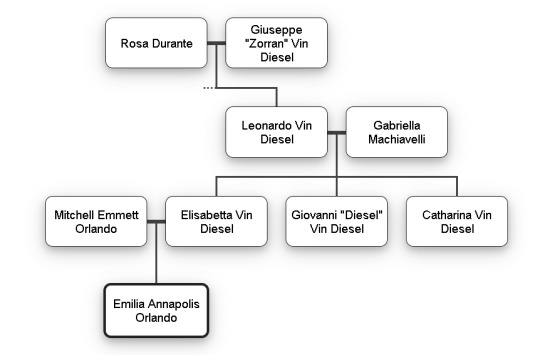
emily is zorran's great granddaughter and diesel's niece. one of diesel's sisters left italy and married a canadian man, and emily was born. she doesn't know much about her family from her mother's side, nor does diesel know that emily exists. will they ever meet? one can only dream
#asks#firecooking#casa tidmouth#fortezza bigg city#stanza halifax#congratulations to the first post that featured the tags of all three stories#there's some kind of symbolism with how emily didn't inherit the vin diesel family name but my brain is a mush right now#the vin diesel family has some wild stories to tell.#up there with the gresleys and the colletts and the billingtons/haddocks#what do you mean my great grandfather was a gangster? what do you mean my uncle had violent beef with the collett family's heir?#zorran is rolling in his grave. or laughing. even more so when he passed away when leonardo was very young#also regarding family bonds in my AUs: there's more to come
46 notes
·
View notes
Text

So yes we went to see Fast X (Part 1) this week which is "The Beginning of the End" of the Fast and the Furious Saga. I seen every one of these movies in the Theater. I remember going to see the very first one in the Summer of 2001. It looked like a cool movie cool and fast cars, lots of action and stunts and everything what is there not to like? and I remember seeing it and thinking it was awesome! and here we are now almost 22 years later watching watching the 10th movie (11th if you count Hobbs&Shaw) in the series. I can't believe it has gone on this long but I have to admit I have enjoyed it every minute of it! it has been so much fun to watch all these movies though out the years and this one is no different.
Now before getting into my actual movie thoughts they did have some collectable goodies which of course we picked up and you can see them here!
But yup we went to see it and it was awesome! its like 2 and a half hours of just vehicular insanity! all the crazy chases and stunts, the shoot outs and fist fights its all just totally bananas! but it is so much fun to watch and I enjoyed every minute of it.
Now I know lots of ppl don't like the movies becasue they are ridiculous but that is part of the fun of this whole series and all I can say is if you are looking for a movie with a serious plot and Oscar winning acting that deals with heavy social issues its not going to be this. This movie and series is all about fun and you go to see it purely for the spectacle you go to see what crazy thing they are going to do next not for the brilliant writing and thespian work you go to see shit blow up! lol
Now in this one you can tell that they are wrapping things up through the various events in the movie (I'm trying to no spoil anything) but it is linked to various things through the previous movies and mainly what happened in the 5th film (Fast Five/Fast & Furious 5) This movie actually starts with the ending of the
and then they jump to present day and that is when the movie actually starts. they continue to pay their respects to Paul Waker and his character there is a scene where Dom (Vin Diesel) is look at some pictures of him and Paul Waker's character and a instrumental version "See You Again" by Wiz Khalifa plays in the background
but the story is basically this someone from the past mainly Dante Reyes (played by Jason Momoa) comes looking for Dom for revenge and plans to take everything from Dom including his family and then his life and when that happens all hell breaks loose.
Now alot of people are praising Jason Momoa in this and I would agree he is the ultimate villain that the family can't out fight or out race they seemingly have met their match in Momoa's Dante Reyes. and yes Jason Momoa is amazing in this I would honestly describe his character as a cross between Bane form the Dark Knight Rises and The Joker. He is intelligent and brutal and brings the family to its knees (much like Bane did to Gotham) but he acts and has that crazy flamboyancy that the Joker has. at one scene in the movie I actually turned to one of the people I was with and whispered to them "this guys crazy!" and Momoa's character is in stark contrast to Vin Diesel's Dom to where they play off very well together being if Momoa's Dante is the Joker then Vin's Dom is Batman
Other then that everyone else did an amazing job in reprising their roles and the movie like I said is very fun and very action heavy. The stunts are wild and crazy like chasing a giant rolling bomb through the streets of Rome and for example near the end they are driving down the side of Dam
The fights and stunts are all really cool and well done and it does have some of that Action movie humor as well that gave me a giggle here and there.
There is some twists and turns and even some surprises you won't really expect especially at the end where it left me kinda shocked I couldn't believe it, but yes this one ends on a bit of a cliffhanger being it Part 1 of 3 and I am excited to see the part 2! but yeah if you love this series and enjoy it I would totally recommend going to see it.
Also the surprised don't end when the movie ends there is really nice mid-credits scene too.
#fast and the furious#fast and furious#fast and the furious 10#fast and furious 10#f10#FX#f10: the fast saga#f10 movie#f10 the fast saga#the fast saga#FAST X#FAST X: the fast saga#FAST X movie#fast and the furious X#fast and furious X#ShannonJ286#NaughtyGirl286
3 notes
·
View notes
Text
Having some thoughts about the references and inspirations used for the Bad Batch’s designs.
So Boba Fett is my absolute favorite character and Temeura Morrison was perfect casting. I went to see the 2008 TCW movie in theaters because I was so excited to see him again, even if he was animated. You can imagine my disappointment. Whoever was on screen was not Temeura Morrison. You could sort of see a resemblance if you squinted and didn’t think too hard about it. They replaced Temeura with Racially Ambiguous G.I. Joe. If I didn’t know better and someone told me the animated clones are space Italians from the moon of New Jersey I would buy it. One Million Brothers Pizzeria and Italian Bistro. Not that there’s something wrong with being space Italian, I just don’t think it’s the right choice for the Fetts. The design got slightly improved by season 7 but it still bugs the hell out of me.
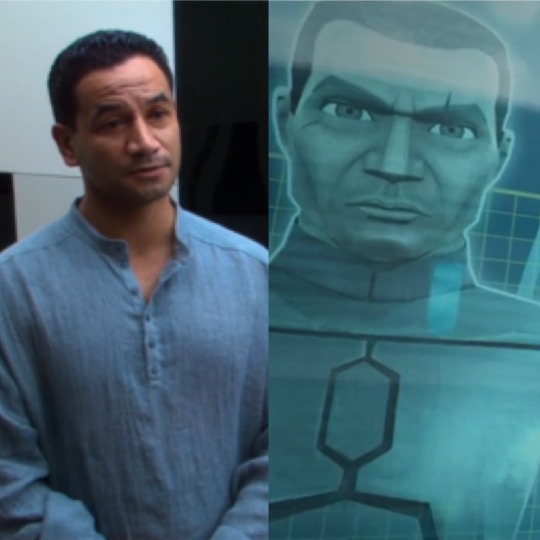
I did eventually get into the show later and (of course) got invested in the clones. Unfortunately, they were largely sidelined by the Jedi storylines. Out of the two new main characters created for TCW, Ahsoka definitely got more development and focus than Rex. When they announced The Bad Batch, I was excited to see a show specifically devoted to the clones… at least that’s what it said on the tin. We have all seen what lurks beneath those stylish helmets.
Jango Fett, you are NOT the father.
So who is?
Based on interviews with Filoni, it sounds like the Bad Batch was a George Lucas idea. And like all his ideas, it’s super derivative. The original trilogy directly lifted elements from sci fi serials, westerns, and samurai movies, more specifically Kurosawa films like The Hidden Fortress. For The Bad Batch character designs, the influence is obviously American action and adventure movies.
Now let’s get specific. Bad Batch, who’s your daddy?
Hunter
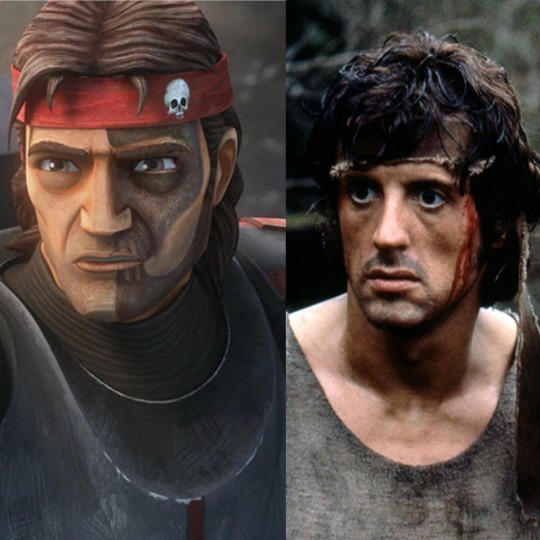
Sylvester Stallone as Rambo in First Blood 1982. That bandana has become an integral part of the iconic action hero look. You see a character wearing one and it’s a visual shorthand for either “this character is a tough guy” like Billy played by Sonny Landham in Predator 1987, or “this character thinks he is/wants to be a tough guy” like Brand played by Josh Brolin in The Goonies 1985 or Edward Frog played by Corey Feldman in The Lost Boys 1987.
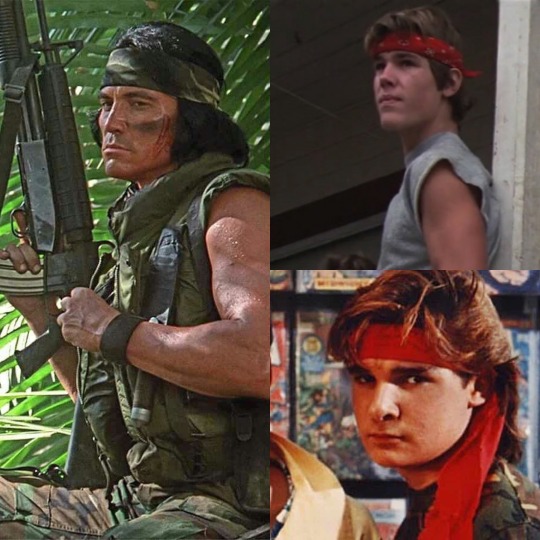
Hunter’s model is closest to the original clone base. If you look closely you will see the eyebrows are straighter with a much lower angle to the arch. His nose is also not the same shape as a standard clone like Rex, including a narrower bridge. It’s certainly not Temeura Morrison’s nose. Remember what I said about space Italians? It didn’t take much to push the existing clone design to resemble an specific Italian man instead of a specific Māori man. The 23&Me came back, and Hunter inherited more than the bandana from Sylvester.
Crosshair
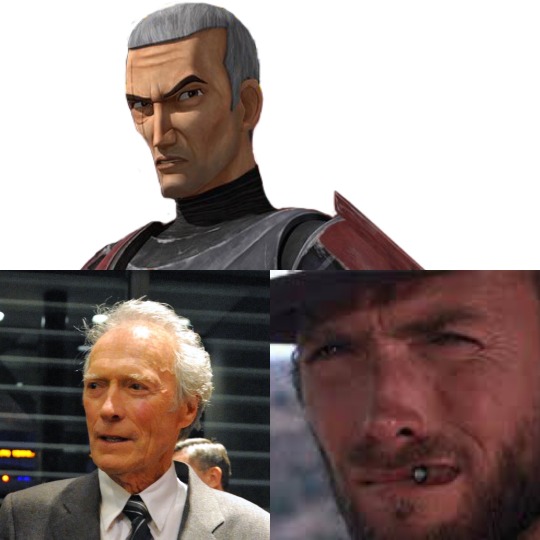
The long narrow nose, the sharp cheekbones, the scowl. That’s no clone, that’s just animated Clint Eastwood. Not even Young and Hot Clint Eastwood from Rawhide 1959-1965. With that hair, I’m talking Gran Torino 2008. The man of few words schtick and family friendly toothpick in lieu of cigar are pure Eastwood as The Man With No Name from Sergio Leone’s spaghetti westerns A Fist Full of Dollars 1964, For a Few Dollars More 1965, and The Good the Bad and the Ugly 1966.
In a way, this is full circle because the actor Jeremy Bulloch took inspiration from Clint Eastwood for his performance as Boba Fett in ESB.
Wrecker
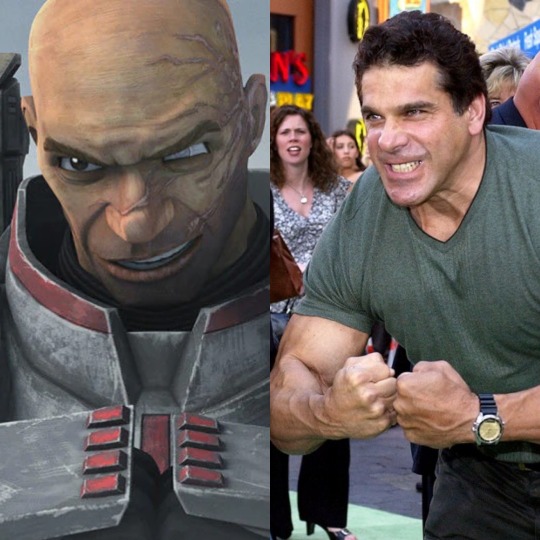
In an interview Filoni lists the Hulk as an (obvious) inspiration for Wrecker. Ever seen the old Hulk tv show from 1978? Well take a look at the actor who played him, Lou Ferrigno. Would you look at that. Even has his papa’s nose.
You could make the argument that Wrecker was influenced by The Rock, an appropriately buff ‘n bald Polynesian (Samoan, not Maori) man. But look at him next his Fast and Furious costar Vin Diesel and tell me which one resembles Wrecker’s character model more.
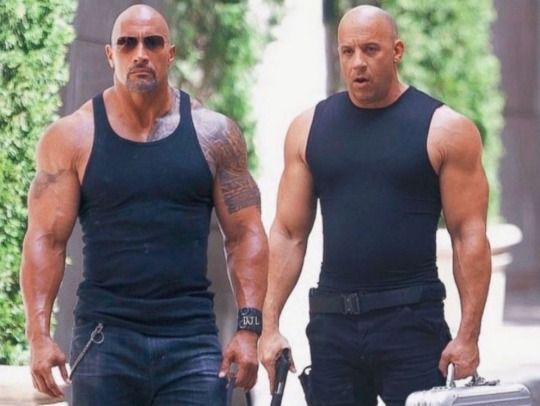
Tech

Tech is a little trickier for me to place. If he has a more direct inspiration it must be something I haven’t seen. That said, his hairline is very Bruce Willis as John McClane in Die Hard 1988. His quippiness and large glasses remind me of Shane Black as Hawkins from Predator 1987. In terms of his face, he looks a but like the result of McClane and Hawkins deciding to settle down and start a family. Although, Tech’s biggest contributors are probably just everyone on TV Trope’s list for Smart People Wear Glasses.
And finally,
Echo

Oh Echo. Considering he wasn’t created for the Bad Batch, he probably wasn’t based on a particular character or movie. But if I had to guess, his situation and appearance remind me a lot of Alex Murphy played by Peter Weller in Robocop 1987. However, Robocop explored the Man or Machine Identity Crisis with more nuance, depth, and dignity. Yikes.
The exact tropes and references used in The Bad Batch have been done successfully with characters who aren’t even human. Gizmo from Gremlins 2: The New Batch 1990 had a brief stint with the Rambo bandana. I could have picked any number of characters for Defining Feature Is Glasses but here is the most cursed version of Simon of Alvin and the Chipmunks. Suffer as I have. Marc Antony with his beloved Pussyfoot from Looney Tunes has the same tough guy with a soft center vibe as Wrecker and his Lula (also a kind of cat). Hell, in the same show we have Cad Bane sharing Cowboy Clint Eastwood with Crosshair. I actually think Bane makes a better Eastwood which is wild considering Crosshair has Eastwood’s entire face and Bane is blue.
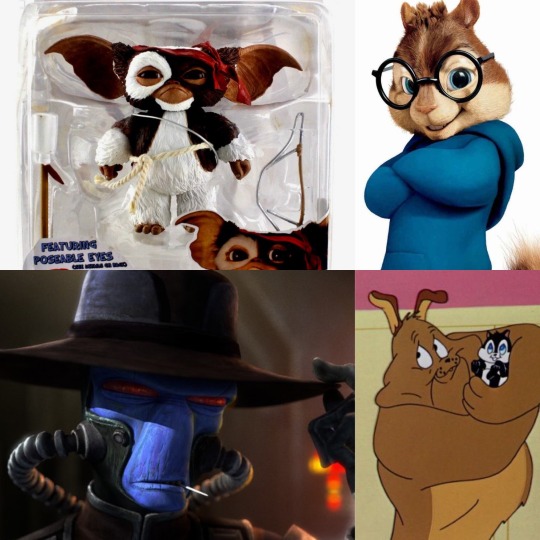
So we’ve established you don’t need your characters to look exactly like their inspirations to match their vibe. So why go through the trouble and cost of creating completely new character designs instead of recycling and altering assets they already had on hand? Just slap on a bandana, toothpick, goggles, and make Wrecker bigger than the others while he does a Hulk pose and you’re done. Based on the general reaction to Howzer it would have been a low effort slam dunk crowd pleaser.
But they didn’t do that.
So here’s the thing. I like the tropes used in The Bad Batch. I am a fan of action adventure movies from the 80s-90s, the sillier the better. I am part of the Bad Batch’s target audience. Considering what I know about Disney and Lucasfilm, I went in with low expectations. I genuinely don’t hate the idea of seeing references to these actors and media in The Bad Batch. I don’t think basing these characters on tropes was a bad idea. If anything it’s a solid starting point for building the characters.
The trouble is nothing got built on the foundation. The plot is directionless, the pacing is wacky, and the characters have nearly no emotional depth or defining character arcs. They just sort of exist without reacting much while the story happens around them. But I can excuse all of that. You don’t stay a fan of Star Wars as long as I have not being able to cherrypick and fill in the gaps. This show has a deeper issue that shouldn’t be ignored.
Why do the animated clones bear at best only a passing resemblance to their live action actor? In interviews, Filoni wouldn’t shut up but the technological advancements in the animation for season 7. So if they are updating things, why not try to make the clones a closer match to their source material? Why did they have to look like completely different people in The Bad Batch to be “unique”? Looking like Temeura Morrison would have no bearing on their special abilities and TCW proved you can have identical looking characters and still have them be distinct. In fact, that’s a powerful theme and the source of tragedy for the clones’ narrative overall.
Here’s Filoni’s early concept art of Crosshair, Wrecker, Tech, and Hunter. (Interesting but irrelevant: Wrecker seems to have a cog tattoo similar to Jesse’s instead of a scar. Wouldn’t it have been funny if they kept that so when they met in season 7 one if them could say something like “Hey we’re twins!” That’s a little clone humor. Just for you guys 😘)
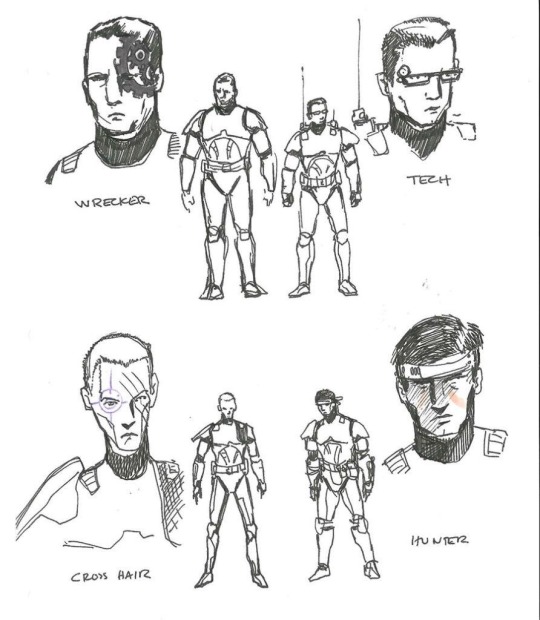
None of these drawings look like the clones in TCW, much less Temeura Morrison. Let’s be generous. Maybe Filoni struggles with drawing a real person’s likeness, as many people do. But he had to hand this off to other artists down the line whose job specifically involves making a stylized character resemble their actor. Yet the final designs missed the mark almost as much as this initial concept. Starting to seem as if the clones looking more like Temeura Morrison was never even on the table. It wasn’t a lack of creativity, skill or technical limitations on the part of the creative team. I don’t think there is an innocent explanation. They went out of their way to make the final product exactly how we got it.
This goes beyond homage. They could have made the same pop culture references and character tropes without completely stripping Temeura Morrison from the role he originated. It was a very purposeful choice to replace him with more immediately familiar actors from established franchises and films. It wouldn’t shock me if Filoni, Lucas, and anyone else calling the shots didn’t even think hard or care enough about the decision to immediately recognize a problem. And I don’t think they believed anyone else would either. At least no one whose opinion they cared about. Those faces are comfortingly familiar and proven bankable. They are what we’re all used to seeing after all. They’re white.
Lack of imagination, bad intentions, or simple ignorance doesn’t really matter in the end. The result is the same. Call it what it is. They replaced a man of color with a bunch of white guys. That’s by the book garden variety run of the mill whitewashing. There’s no debate worth having about it. For a fanbase that loves to nitpick things like whether or not it’s in character for Han to shoot first or Jeans Guy in the Mandalorian, we sure are quick to find excuses for clones who look nothing like their template. Why is that? If you don’t see the problem, congratulations. Your ass is showing. Pull your jeans up.
258 notes
·
View notes
Text
Summer 2021′s Movies - My Top Ten Favourite Films (Part 1)
The Runners-Up:
20. LUCA – I’ll admit I really wasn’t sold on Disney/Pixar’s coming-of-age fantasy comedy, which revolves around a pair of young sea monsters living off the coast of the 1950s Italian Riviera, who discover they can assume human form when they dry out and go on land on a quest of discovery. Thankfully the strong reviews convinced me to give it a chance – this is a frothy and irreverent romp through an exotically nostalgic world filled with Vespas, pasta-eating contests and found families that’s fun for kids of all ages.
19. FAST & FURIOUS 9 – the high concept action franchise may be bursting under the ever-increasing weight of its own ludicrousness, but it’s still TONS of fun, packed with stunning over-the-top action, colourful globe-trotting and a loveable bunch of misfits we’ve grown incredibly fond of over the past TWENTY YEARS. This time Dom (the irrepressible Vin Diesel) and the team are up against ruthless hi-tech mercenary Jakob (John Cena), a lethal jack-of-all-trades with a dark connection to the Toretto name.
18. REMINISCENCE – Westworld co-creator Lisa Joy’s attempt to make it on the big screen looks set to go down as one of the biggest cinematic flops of 2021, which is a shame because the feature-debuting writer-director has crafted a genuinely fascinating speculative sci-fi noir detective thriller. Set in a darkly dystopian future in which Global Warming has caused the sea levels to rise and society to start breaking down, it tells the story of Nick Bannister (Hugh Jackman), a former soldier who ekes out a living using revolutionary tech to help the idle rich relive their fondest memories, until a life-changing mystery from his own past resurfaces, threatening to tear his whole world apart. Frustratingly, it looks like most audiences are going to bypass this, which is a criminal loss.
17. FREE GUY – after a seven year hiatus, Night at the Museum director Shawn Levy returns to the big screen in fine form with this deliriously inventive fantastical comedy adventure about Guy (a typically on-fire Ryan Reynolds), an NPC in an anarchic, Grand Theft Auto style MMORPG called Free City who discovers his own sentience after falling in love with Millie (Killing Eve’s Jodie Comer), a player with a hidden agenda that puts them both at odds with the game’s nefarious creator, Antwan (a thoroughly hilarious Taika Waititi).
16. EVANGELION 3.0 + 1.01: THRICE UPON A TIME – visionary anime creator Hideaki Anno brings his long-running sci-fi saga to a close with this fourth instalment to his wildly ambitious cinematic “Rebuild” of cult TV series Neon Genesis Evangelion. It’s as frothy, melodramatic and bonkers as ever, packed full of weighty themes and crazy ideas, while the animation maintains this series’ ridiculously high levels of quality and the action is as explosive as ever, and Hideaki brings the whole mad mess to a climax that’s as rich, powerful and thoroughly befuddling as the saga deserves.
15. THOSE WHO WISH ME DEAD – Sicario writer Taylor Sheridan returns to the director’s chair (after impressive debut Wind River) with this intense and enthralling suspense thriller adapted by bestselling author Michael Koryta (along with Sheridan and Blood Diamond’s Charles Leavitt) from his own acclaimed novel. Angelina Jolie is (ahem) fiery but fallible as haunted smokejumper Hanna Faber, whose PTSD drives her to protect a desperate boy (Finn Little) who’s being hunted through the wilds of Montana by a pair of relentless assassins (Aidan Gillen and Nicholas Hoult).
14. CRUELLA – far from the clunky cash-in retcon many were predicting, Disney’s ambitious black comedy crime caper does a thoroughly admirable job in delivering this fascinating and deeply compelling reimagining of the story of rogue fashion designer Cruella de Vil (one of the best performances I’ve ever seen Emma Stone deliver, hands down), the dastardly villainess of 101 Dalmatians. She’s certainly far more complex here, no longer a raging monster, but far from a whitewashed PC apologist, either, much more of a morally grey antihero with a very wicked dark side – then again, with I, Tonya director Craig Gillespie at the helm it’s not really a surprise. Richly designed and dripping in spectacularly adventurous period detail, this is an divine romp from start to finish.
13. THE GREEN KNIGHT – the latest feature from writer director David Lowery (Ain’t Them Bodies Saits, Pete’s Dragon, The Old Man & the Gun) is as offbeat and unusual as you’d expect from a visionary filmmaker with such a wildly varied CV. Adapting the fantastical chivalric romance Sir Gawain & the Green Knight, he’s crafted what’s surely destined to be remembered as the year’s STRANGEST film, but it’s a work of aching beauty and introspective imagination that sears itself into the memory and rewards the viewer’s patience despite its leisurely pace. Dev Patel is unbearably sexy and wonderfully complex as Gawain, while Sean Harris delivers show-stopping support with stately charisma and world-weary integrity as King Arthur. This film is sure to divide opinions as well as audiences, but I think it’s a bona fide masterpiece that must be seen to be believed.
12. CANDYMAN – after watching this wildly imaginative and frequently gut-wrenching soft-reboot/sequel to Bernard Rose’s acclaimed adaptation of Clive Barker’s short story The Forbidden, I feel supremely confident about emerging writer-director Nia DaCosta’s coming MCU breakout with The Marvels. Wisely papering over the clunky previous sequels, this streamlined trailblazing deep dive into the pure horror of the legend of the righteously mad spectral killer haunting the Chicago housing ghetto of Cabrini-Green sees a daring modern artist (Aquaman’s Yahya Abdul-Mateen II) find his latest project turning into a dangerously self-destructive obsession. Writer-producer Jordan Peele’s fingerprints are all over this, but DaCosta clearly shows signs that she’s going to be a hell of a talent to watch in the future.
11. THE WITCHER: NIGHTMARE OF THE WOLF – I wouldn’t normally shout about an animated spinoff to a TV series like this, but I was SO INSANELY IMPRESSED with this brilliant prequel to Netflix’ popular fantasy show (which clearly intends to lay some origin story groundwork for the impending second season) that I just can’t help myself. Recounting the backstory of Geralt of Rivia’s own Witcher mentor Vesemir, this beautifully expands on the already compelling universe the series has created, as well as delivering some breath-taking thrills and chills through some of the most exquisite cell animation I’ve ever seen outside of the greats of anime. A must-see for Witcher fans, then, but one I’d also highly recommend to anyone who likes their animation a bit more grown-up and edgy.
#movies 2021#luca#disney luca#fast & furious 9#reminiscence#reminiscence movie#free guy#evangelion thrice upon a time#rebuild of evangelion 4#those who wish me dead#those who wish me dead movie#cruella#cruella movie#the green knight#the green knight movie#candyman#candyman 2021#the witcher nightmare of the wolf#awesome sauce
19 notes
·
View notes
Text
The Best Films of 2020
I can’t tell you anything novel or insightful about this year that has been stolen from our lives. I watched zero of these films in a theater, and I watched most of them half-asleep in moments that I stole from my children. Don’t worry, there are some jokes below.
GARBAGE
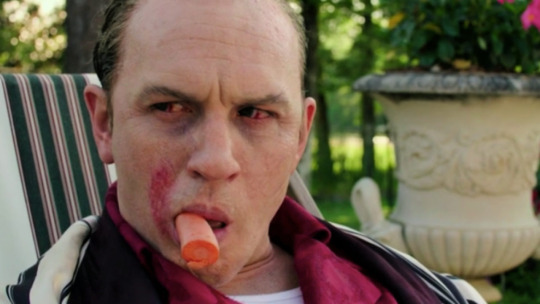
93. Capone (Josh Trank)- What is the point of this dinner theater trash? It takes place in the last year of Capone's life, when he was released from prison due to failing health and suffered a stroke in his Florida home. So it covers...none of the things that make Al Capone interesting? It's not historically accurate, which I have no problem with, but if you steer away from accuracy, then do something daring and exciting. Don't give me endless scenes of "Phonse"--as if the movie is running from the very person it's about--drawing bags of money that promise intrigue, then deliver nothing in return.
That being said, best "titular character shits himself" scene since The Judge.
92. Ammonite (Francis Lee)- I would say that this is the Antz to Portrait of a Lady on Fire's A Bug's Life, but it's actually more like the Cars 3 to Portrait of a Lady on Fire's Toy Story 1.
91. Ava (Tate Taylor)- Despite the mystery and inscrutability that usually surround assassins, what if we made a hitman movie but cared a lot about her personal life? Except neither the assassin stuff nor the family stuff is interesting?
90. Wonder Woman 1984 (Patty Jenkins)- What a miscalculation of what audiences loved about the first and wanted from the sequel. WW84 is silly and weightless in all of the ways that the first was elegant and confident. If the return of Pine is just a sort of phantom representation of Diana's desires, then why can he fly a real plane? If he is taking over another man's soul, then, uh, what ends up happening to that guy? For that matter, why is it not 1984 enough for Ronald Reagan to be president, but it is 1984 enough for the president to have so many Ronald Reagan signifiers that it's confusing? Why not just make a decision?
On paper, the me-first values of the '80s lend themselves to the monkey's paw wish logic of this plot. You could actually do something with the Star Wars program or the oil crisis. But not if the setting is played for only laughs and the screenplay explains only what it feels like.
89. Babyteeth (Shannon Murphy)- In this type of movie, there has to be a period of the Ben Mendelsohn character looking around befuddled about the new arrangement and going, "What's this now--he's going to be...living with us? The guy who tried to steal our medication? This is crazy!" But that's usually ten minutes, and in this movie it's an hour. I was so worn out by the end.
88. You Should Have Left (David Koepp)- David Koepp wrote Jurassic Park, so he's never going to hell, but how dare he start caring about his own mystery at the hour mark. There's a forty-five minute version of this movie that could get an extra star from me, and there's a three-hour version of Amanda Seyfried walking around in athleisure that would get four stars from me. What we actually get? No thanks.
87. Black Is King (Beyonce, et al.)- End your association with The Lion King, Bey. It has resulted in zero bops.
ADMIRABLE FAILURES
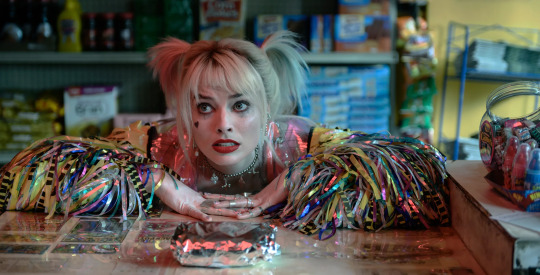
86. Birds of Prey (And the Fantabulous Emancipation of One Harley Quinn) (Cathy Yan)- There's nothing too dysfunctional in the storytelling or performances, but Birds of Prey also doesn't do a single thing well. I would prefer something alive and wild, even if it were flawed, to whatever tame belt-level formula this is.
85. The Turning (Floria Sigismondi)- This update of The Turn of the Screw pumps the age of Miles up to high school, which creates some horny creepiness that I liked. But the age of the character also prevents the ending of the novel from happening in favor of a truly terrible shrug. I began to think that all of the patience that the film showed earlier was just hesitance for its own awful ending.
I watched The Turning as a Mackenzie Davis Movie Star heat check, and while I'm not sure she has the magnetism I was looking for, she does have a great teacher voice, chastening but maternal.
84. Bloodshot (David Wilson)- A whole lot of Vin Diesel saying he's going to get revenge and kill a bunch of dudes; not a whole lot of Vin Diesel actually getting revenge and killing a bunch of dudes.
83. Downhill (Nat Faxon and Jim Rash)- I was an English major in college, which means I ended up locking myself into literary theories that, halfway through the writing of an essay, I realized were flawed. But rather than throw out the work that I had already proposed, I would just keep going and see if I could will the idea to success.
So let's say you have a theory that you can take Force Majeure by Ruben Ostlund, one of the best films of its year, and remake it so that its statement about familial anxiety could apply to Americans of the same age and class too...if it hadn't already. And maybe in the first paragraph you mess up by casting Will Ferrell and Julia Louis-Dreyfus, people we are conditioned to laugh at, when maybe this isn't that kind of comedy at all. Well, don't throw it away. You can quote more--fill up the pages that way--take an exact shot or scene from the original. Does that help? Maybe you can make the writing more vigorous and distinctive by adding a character. Is that going to make this baby stand out? Maybe you could make it more personal by adding a conclusion that is slightly more clever than the rest of the paper?
Or perhaps this is one you're just not going to get an A on.
82. Hillbilly Elegy (Ron Howard)- I watched this melodrama at my mother's encouragement, and, though I have been trying to pin down her taste for decades, I think her idea of a successful film just boils down to "a lot of stuff happens." So in that way, Ron Howard's loss is my gain, I guess.
There is no such thing as a "neutral Terminator."
81. Relic (Natalie Erika James)- The star of the film is Vanessa Cerne's set decoration, but the inert music and slow pace cancel out a house that seems neglected slowly over decades.
80. Buffaloed (Tanya Wexler)- Despite a breathless pace, Buffaloed can't quite congeal. In trying to split the difference between local color hijinks and Moneyballed treatise on debt collection, it doesn't commit enough to either one.
Especially since Zoey Deutch produced this one in addition to starring, I'm getting kind of worried about boo's taste. Lot of Two If by Seas; not enough While You Were Sleepings.
79. Like a Boss (Miguel Arteta)- I chuckled a few times at a game supporting cast that is doing heavy lifting. But Like a Boss is contrived from the premise itself--Yeah, what if people in their thirties fell out of friendship? Do y'all need a creative consultant?--to the escalation of most scenes--Why did they have to hide on the roof? Why do they have to jump into the pool?
The movie is lean, but that brevity hurts just as much as it helps. The screenplay knows which scenes are crucial to the development of the friendship, but all of those feel perfunctory, in a different gear from the setpieces.
To pile on a bit: Studio comedies are so bare bones now that they look like Lifetime movies. Arteta brought Chuck & Buck to Sundance twenty years ago, and, shot on Mini-DV for $250,000, it was seen as a DIY call-to-bootstraps. I guarantee that has more setups and locations and shooting days than this.
78. Eurovision Song Contest: The Story of Fire Saga (David Dobkin)- Add Dan Stevens to the list of supporting players who have bodied Will Ferrell in his own movie--one that he cared enough to write himself.
Like Downhill, Ferrell's other 2020 release, this isn't exactly bad. It's just workmanlike and, aside from the joke about Demi Lovato's "uninformed" ghost, frustratingly conventional.
77. The Traitor (Marco Bellochio)- Played with weary commitment by Pierfrancesco Favino, Tomasso Buscetta is "credited" as the first informant of La Cosa Nostra. And that sounds like an interesting subject for a "based on a true story" crime epic, right? Especially when you find out that Buscetta became a rat out of principle: He believed that the mafia to which he had pledged his life had lost its code to the point that it was a different organization altogether.
At no point does Buscetta waver or even seem to struggle with his decision though, so what we get is less conflicted than that description might suggest. None of these Italian mob movies glorify the lifestyle, so I wasn't expecting that. But if the crime doesn't seem enticing, and snitching on the crime seems like forlorn duty, and everything is pitched with such underhanded matter-of-factness that you can't even be sure when Buscetta has flipped, then what are we left with? It was interesting seeing how Italian courts work, I guess?

76. Kajillionaire (Miranda July)- This is another movie so intent on building atmosphere and lore that it takes too long to declare what it is. When the protagonist hits a breaking point and has to act, she has only a third of a film to grow. So whispery too.
Gina Rodriguez is the one to inject life into it. As soon as her motormouth winds up, the film slips into a different gear. The atmosphere and lore that I mentioned reeks of artifice, but her character is believably specific. Beneath a basic exterior is someone who is authentically caring but still morally compromised, beholden to the world that the other characters are suspicious of.
75. Scoob! (Tony Cervone)- The first half is sometimes clever, but it hammers home the importance of friendship while separating the friends.
The second half has some positive messaging, but your kids' movie might have a problem with scale if it involves Alexander the Great unlocking the gates of the Underworld.
My daughter loved it.
74. The Lovebirds (Michael Showalter)- If I start talking too much about this perfectly fine movie, I end up in that unfair stance of reviewing the movie I wanted, not what is actually there.* As a fan of hang-out comedies, I kind of resent that any comedy being made now has to be rolled into something more "exciting," whether it's a wrongfully accused or mistaken identity thriller or some other genre. Such is the post-Game Night world. There's a purposefully anti-climactic note that I wish The Lovebirds had ended on, but of course we have another stretch of hiding behind boats and shooting guns. Nanjiani and Rae are really charming leads though.
*- As a New Orleanian, I was totally distracted by the fake aspects of the setting too. "Oh, they walked to Jefferson from downtown? Really?" You probably won't be bothered by the locations.
73. Sonic the Hedgehog (Jeff Fowler)- In some ways the storytelling is ambitious. (I'm speaking for only myself, but I'm fine with "He's a hedgehog, and he's really fast" instead of the owl mother, teleportation backstory. Not everything has to be Tolkien.) But that ambition doesn't match the lack of ambition in the comedy, which depends upon really hackneyed setups and structures. Guiding Jim Carrey to full alrighty-then mode was the best choice anyone made.
72. Malcolm & Marie (Sam Levinson)- The stars move through these long scenes with agility and charisma, but the degree of difficulty is just too high for this movie to reach what it's going for.
Levinson is trying to capture an epic fight between a couple, and he can harness the theatrical intensity of such a thing, but he sacrifices almost all of the nuance. In real life, these knock-down-drag-outs can be circular and indirect and sad in a way that this couple's manipulation rarely is. If that emotional truth is all this movie is trying to achieve, I feel okay about being harsh in my judgment of how well it does that.
71. Beanpole (Kantemir Balagov)- Elusive in how it refuses to declare itself, forthright in how punishing it is. The whole thing might be worth it for a late dinner scene, but I'm getting a bit old to put myself through this kind of misery.
70. The Burnt Orange Heresy (Giuseppe Capotondi)- Silly in good ways until it's silly in bad ways. Elizabeth Debicki remains 6'3".
69. Everybody’s Everything (Sebastian Jones and Ramez Silyan)- As a person who listened to Lil Peep's music, I can confidently say that this documentary is overstating his greatness. His death was a significant loss, as the interview subjects will all acknowledge, but the documentary is more useful as a portrait of a certain unfocused, rapacious segment of a generation that is high and online at all times.
68. The Witches (Robert Zemeckis)- Robert Zemeckis, Kenya Barris, and Guillermo Del Toro are the credited screenwriters, and in a fascinating way, you can see the imprint of each figure on the final product. Adapting a very European story to the old wives' tales of the American South is an interesting choice. Like the Nicolas Roeg try at this material, Zemeckis is not afraid to veer into the terrifying, and Octavia Spencer's pseudo witch doctor character only sells the supernatural. From a storytelling standpoint though, it seems as if the obstacles are overcome too easily, as if there's a whole leg of the film that has been excised. The framing device and the careful myth-making of the flashback make promises that the hotel half of the film, including the abrupt ending, can't live up to.
If nothing else, Anne Hathaway is a real contender for Most On-One Performance of the year.
67. Irresistible (Jon Stewart)- Despite a sort of imaginative ending, Jon Stewart's screenplay feels more like the declarative screenplay that would get you hired for a good movie, not a good screenplay itself. It's provocative enough, but it's clumsy in some basic ways and never evades the easy joke.
For example, the Topher Grace character is introduced as a sort of assistant, then is re-introduced an hour later as a polling expert, then is shown coaching the candidate on presentation a few scenes later. At some point, Stewart combined characters into one role, but nothing got smoothed out.
ENDEARING CURIOSITIES WITH BIG FLAWS
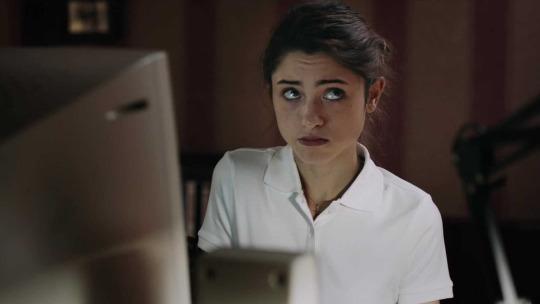
66. Yes, God, Yes (Karen Maine)- Most people who are Catholic, including me, are conflicted about it. Most people who make movies about being Catholic hate it and have an axe to grind. This film is capable of such knowing wit and nuance when it comes to the lived-in details of attending a high school retreat, but it's more concerned with taking aim at hypocrisy in the broad way that we've seen a million times. By the end, the film is surprisingly all-or-nothing when Christian teenagers actually contain multitudes.
Part of the problem is that Karen Maine's screenplay doesn't know how naive to make the Alice character. Sometimes she's reasonably naive for a high school senior in 2001; sometimes she's comically naive so that the plot can work; and sometimes she's stupid, which isn't the same as naive.
65. Bad Boys for Life (Adil El Arbi and Bilall Fallah)- This might be the first buddy cop movie in which the vets make peace with the tech-comm youngs who use new techniques. If that's the only novelty on display here--and it is--then maybe that's enough. I laughed maybe once. Not that the mistaken identity subplot of Bad Boys 1 is genius or anything, but this entry felt like it needed just one more layer to keep it from feeling as basic as it does. Speaking of layers though, it's almost impossible to watch any Will Smith movie now without viewing it through the meta-narrative of "What is Will Smith actually saying about his own status at this point in his career?" He's serving it up to us.
I derived an inordinate amount of pleasure from seeing the old school Simpson/Bruckheimer logo.
64. The Gentlemen (Guy Ritchie)- Look, I'm not going to be too negative on a movie whose crime slang is so byzantine that it has to be explained with subtitles. That's just me. I'm a simple man. But I can tell you that I tuned out pretty hard after seven or eight double-crosses.
The bloom is off the rose a bit for Ritchie, but he can still nail a music cue. I've been waiting for someone to hit "That's Entertainment" the way he does on the end credits.
63. Bad Hair (Justin Simien)- In Bad Hair, an African-American woman is told by her boss at a music video channel in 1989 that straightening her hair is the way to get ahead; however, her weave ends up having a murderous mind of its own. Compared to that charged, witty logline, the execution of the plot itself feels like a laborious, foregone conclusion. I'm glad that Simien, a genuinely talented writer, is making movies again though. Drop the skin-care routine, Van Der Beek!
62. Greyhound (Aaron Schneider)- "If this is the type of role that Tom Hanks writes for himself, then he understands his status as America's dad--'wise as the serpent, harmless as the dove'--even better than I thought." "America's Dad! Aye aye, sir!" "At least half of the dialogue is there for texture and authenticity, not there to be understood by the audience." "Fifty percent, Captain!" "The environment looks as fake as possible, but I eventually came around to the idea that the movie is completely devoid of subtext." "No subtext to be found, sir!"
61. Mank (David Fincher)- About ten years ago, the Creative Screenwriting podcast spent an hour or so with James Vanderbilt, the writer of Zodiac and nothing else that comes close, as he relayed the creative paces that David Fincher pushed him through. Hundreds of drafts and years of collaborative work eventuated in the blueprint for Fincher's most exacting, personal film, which he didn't get a writing credit on only because he didn't seek one.
Something tells me that Fincher didn't ask for rewrites from his dead father. No matter what visuals and performances the director can coax from the script--and, to be clear, these are the worst visuals and performances of his career--they are limited by the muddy lightweight pages. There are plenty of pleasures, like the slippery election night montage or the shakily platonic relationship between Mank and Marion. But Fincher hadn't made a film in six years, and he came back serving someone else's master.
60. Tesla (Michael Almereyda)- "You live inside your head." "Doesn't everybody?"
As usual, Almereyda's deconstructions are invigorating. (No other moment can match the first time Eve Hewson's Anne fact-checks something with her anachronistic laptop.) But they don't add up to anything satisfying because Tesla himself is such an opaque figure. Driven by the whims of his curiosity without a clear finish line, the character gives Hawke something enigmatic to play as he reaches deep into a baritone. But he's too inward to lend himself to drama. Tesla feels of a piece with Almereyda's The Experimenter, and that's the one I would recommend.
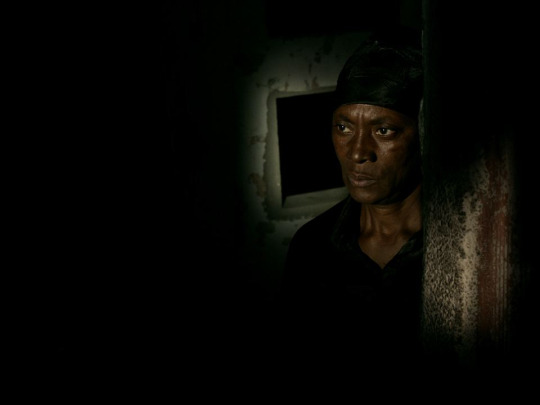
59. Vitalina Varela (Pedro Costa)- I can't oversell how delicately beautiful this film is visually. There's a scene in which Vitalina lugs a lantern into a church, but we get several seconds of total darkness before that one light source carves through it and takes over part of the frame. Each composition is as intricate as it is overpowering, achieving a balance between stark and mannered.
That being said, most of the film is people entering or exiting doors. I felt very little of the haunting loss that I think I was supposed to.
58. The Rhythm Section (Reed Morano)- Call it the Timothy Hutton in The General's Daughter Corollary: If a name-actor isn't in the movie much but gets third billing, then, despite whom he sends the protagonist to kill, he is the Actual Bad Guy.
Even if the movie serves up a lot of cliche, the action and sound design are visceral. I would like to see more from Morano.
57. Red, White and Blue (Steve McQueen)- Well-made and heartfelt even if it goes step-for-step where you think it will.
Here's what I want to know though: In the academy training sequence, the police cadets have to subdue a "berserker"; that is, a wildman who swings at their riot gear with a sledgehammer. Then they get him under control, and he shakes their hands, like, "Good angle you took on me there, mate." Who is that guy and where is his movie? Is this full-time work? Is he a police officer or an independent contractor? What would happen if this exercise didn't go exactly as planned?
56. Wolfwalkers (Tomm Moore and Ross Stewart)- The visuals have an unfinished quality that reminded me of The Tale of Princess Kaguya--the center of a flame is undrawn white, and fog is just negative space. There's an underlying symmetry to the film, and its color palette changes with mood.
Narratively, it's pro forma and drawn-out. Was Riley in Inside Out the last animated protagonist to get two parents? My daughter stuck with it, but she needed a lot of context for the religious atmosphere of 17th century Ireland.
55. What She Said: The Art of Pauline Kael (Rob Garver)- The film does little more than one might expect; it's limited in the way that any visual medium is when trying to sum up a woman of letters. But as far as education for Kael's partnership with Warren Beatty or the idea of The New Yorker paying her for only six months out of the year, it was useful for me.
Although Garver isn't afraid to point to the work that made Kael divisive, it would have been nice to have one or two interview subjects who questioned her greatness, rather than the crew of Paulettes who, even when they do say something like, "Sometimes I radically disagreed with her," do it without being able to point to any specifics.
54. Beastie Boys Story (Spike Jonze)- As far as this Spike Jonze completist is concerned, this is more of a Powerpoint presentation than a movie, Beastie Boys Story still warmed my heart, making me want to fire up Paul's Boutique again and take more pictures of my buddies.
53. Tenet (Christopher Nolan)- Cool and cold, tantalizing and frustrating, loud and indistinct, Tenet comes close to Nolan self-parody, right down to the brutalist architecture and multiple characters styled like him. The setpieces grabbed me, I'll admit.
Nolan's previous film, which is maybe his best, was "about" a lot and just happened to play with time; Tenet is only about playing with time.
PRETTY GOOD MOVIES
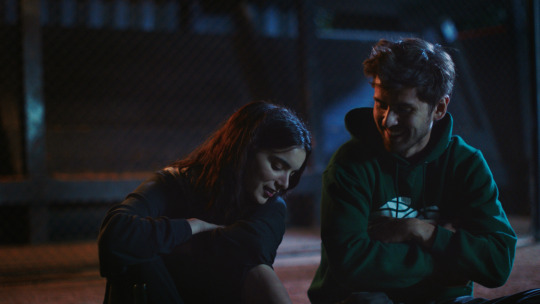
52. Shithouse (Cooper Raiff)- "Death is ass."
There's such a thing as too naturalistic. If I wanted to hear how college freshmen really talked, I would hang out with college freshmen. But you have to take the good verisimilitude with the bad, and good verisimilitude is the mother's Pod Save America t-shirt.
There are some poignant moments (and a gonzo performance from Logan Miller) in this auspicious debut from Cooper Raiff, the writer/director/editor/star. But the second party sequence kills some of the momentum, and at a crucial point, the characters spell out some motivation that should have stayed implied.
51. Totally Under Control (Alex Gibney, Ophelia Harutyunyan, Suzanne Hillinger)- As dense and informative as any other Gibney documentary with the added flex of making it during the pandemic it is investigating.
But yeah, why am I watching this right now? I don't need more reasons to be angry with Trump, whom this film calmly eviscerates. The directors analyze Trump's narcissism first through his contradictions of medical expertise in order to protect the economy that could win him re-election. Then it takes aim at his hiring based on loyalty instead of experience. But you already knew that, which is the problem with the film, at least for now.
50. Happiest Season (Clea Duvall)- I was in the perfect mood to watch something this frothy and bouncy. Every secondary character receives a moment in the sun, and Daniel Levy gets a speech that kind of saves the film at a tipping point.
I must say though: I wanted to punch Harper in her stupid face. She is a terrible romantic partner, abandoning or betraying Abby throughout the film and dissembling her entire identity to everyone else in a way that seems absurd for a grown woman in 2020. Run away, Kristen. Perhaps with Aubrey Plaza, whom you have more chemistry with. But there I go shipping and aligning myself with characters, which only proves that this is an effective romantic comedy.
49. The Way Back (Gavin O’Connor)- Patient but misshapen, The Way Back does just enough to overcome the cliches that are sort of unavoidable considering the genre. (I can't get enough of the parent character who, for no good reason, doesn't take his son's success seriously. "Scholarship? What he's gotta do is put his nose in them books! That's why I don't go to his games. [continues moving boxes while not looking at the other character] Now if you'll excuse me while I wait four scenes before showing up at a game to prove that I'm proud of him after all...")
What the movie gets really right or really wrong in the details about coaching and addiction is a total crap-shoot. But maybe I've said too much already.
48. The Whistlers (Corneliu Porumboiu)- Porumboiu is a real artist who seems to be interpreting how much surveillance we're willing to acknowledge and accept, but I won't pretend to have understood much of the plot, the chapters or which are told out of order. Sometimes the structure works--the beguiling, contextless "high-class hooker" sequence--but I often wondered if the film was impenetrable in the way that Porumboiu wanted it to be or impenetrable in the way he didn't.
To tell you the truth, the experience kind of depressed me because I know that, in my younger days, this film is the type of thing that I would re-watch, possibly with the chronology righted, knowing that it is worth understanding fully. But I have two small children, and I'm exhausted all the time, and I kind of thought I should get some credit for still trying to catch up with Romanian crime movies in the first place.
47. Borat Subsequent Moviefilm (Jason Woliner)- I laughed too much to get overly critical, but the film is so episodic and contrived that it's kind of exhausting by the end--even though it's achieving most of its goals. Maybe Borat hasn't changed, but the way our citizens own their ugliness has.
46. First Cow (Kelly Reichardt)- Despite how little happens in the first forty minutes, First Cow is a thoughtful capitalism parable. Even though it takes about forty minutes to get going, the friendship between Cookie and King-Lu is natural and incisive. Like Reichardt's other work, the film's modest premise unfolds quite gracefully, except for in the first forty minutes, which are uneventful.
45. Les Miserables (Ladj Ly)- I loved parts of the film--the disorienting, claustrophobic opening or the quick look at the police officers' home lives, for example. But I'm not sure that it does anything very well. The needle the film tries to thread between realism and theater didn't gel for me. The ending, which is ambiguous in all of the wrong ways, chooses the theatrical. (If I'm being honest, my expectations were built up by Les Miserables' Jury Prize at Cannes, and it's a bit superficial to be in that company.)
If nothing else, it's always helpful to see how another country's worst case scenario in law enforcement would look pretty good over here.
44. Bad Education (Cory Finley)- The film feels too locked-down and small at the beginning, so intent on developing the protagonist neutrally that even the audience isn't aware of his secrets. So when he faces consequences for those secrets, there's a disconnect. Part of tragedy is seeing the doom coming, right?
When it opens up, however, it's empathetic and subtle, full of a dry irony that Finley is already specializing in after only one other feature. Geraldine Viswanathan and Allison Janney get across a lot of interiority that is not on the page.
43. The Trip to Greece (Michael Winterbottom)- By the fourth installment, you know whether you're on board with the franchise. If you're asking "Is this all there is?" to Coogan and Brydon's bickering and impressions as they're served exotic food in picturesque settings, then this one won't sway you. If you're asking "Is this all there is?" about life, like they are, then I don't need to convince you.
I will say that The Trip to Spain seemed like an enervated inflection point, at which the squad could have packed it in. The Trip to Greece proves that they probably need to keep doing this until one of them dies, which has been the subtext all along.
42. Feels Good Man (Arthur Jones)- This documentary centers on innocent artist Matt Furie's helplessness as his Pepe the Frog character gets hijacked by the alt-right. It gets the hard things right. It's able to, quite comprehensively, trace a connection from 4Chan's use of Pepe the Frog to Donald Trump's near-assuming of Pepe's ironic deniability. Director Arthur Jones seems to understand the machinations of the alt-right, and he articulates them chillingly.
The easy thing, making us connect to Furie, is less successful. The film spends way too much time setting up his story, and it makes him look naive as it pits him against Alex Jones in the final third. Still, the film is a quick ninety-two minutes, and the highs are pretty high.
41. The Old Guard (Gina Prince-Bythewood)- Some of the world-building and backstory are handled quite elegantly. The relationships actually do feel centuries old through specific details, and the immortal conceit comes together for an innovative final action sequence.
Visually and musically though, the film feels flat in a way that Prince-Bythewood's other films do not. I blame Netflix specs. KiKi Layne, who tanked If Beale Street Could Talk for me, nearly ruins this too with the child-actory way that she stresses one word per line. Especially in relief with one of our more effortless actresses, Layne is distracting.
40. The Trial of the Chicago 7 (Aaron Sorkin)- Whenever Sacha Baron Cohen's Abbie Hoffman opens his mouth, the other defendants brace themselves for his dismissive vulgarity. Even when it's going to hurt him, he can't help but shoot off at the mouth. Of course, he reveals his passionate and intelligent depths as the trial goes on. The character is the one that Sorkin's screenplay seems the most endeared to: In the same way that Hoffman can't help but be Hoffman, Sorkin can't help but be Sorkin. Maybe we don't need a speech there; maybe we don't have to stretch past two hours; maybe a bon mot diffuses the tension. But we know exactly what to expect by now. The film is relevant, astute, witty, benevolent, and, of course, in love with itself. There are a handful of scenes here that are perfect, so I feel bad for qualifying so much.
A smaller point: Daniel Pemberton has done great work in the past (Motherless Brooklyn, King Arthur, The Man from U.N.C.L.E.), but the first sequence is especially marred by his sterile soft-rock approach.
GOOD MOVIES
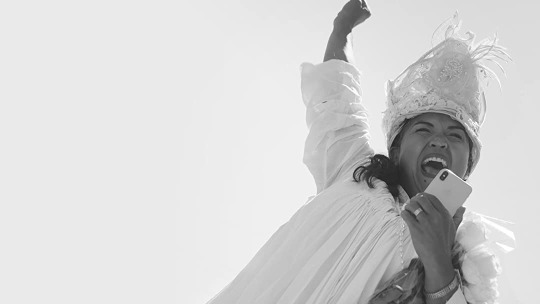
39. Time (Garrett Bradley)- The key to Time is that it provides very little context. Why the patriarch of this family is serving sixty years in prison is sort of besides the point philosophically. His wife and sons have to move on without him, and the tragedy baked into that fact eclipses any notion of what he "deserved." Feeling the weight of time as we switch back and forth between a kid talking about his first day of kindergarten and that same kid graduating from dentistry school is all the context we need. Time's presentation can be quite sumptuous: The drone shot of Angola makes its buildings look like crosses. Or is it X's?
At the same time, I need some context. When director Garrett Bradley withholds the reason Robert's in prison, and when she really withholds that Fox took a plea and served twelve years, you start to see the strings a bit. You could argue that knowing so little about why, all of a sudden, Robert can be on parole puts you into the same confused shoes as the family, but it feels manipulative to me. The film is preaching to the choir as far as criminal justice goes, which is fine, but I want it to have the confidence to tell its story above board.
38. Bloody Nose, Empty Pockets (Turner Ross and Bill Ross IV)- I have a barfly friend whom I see maybe once a year. When we first set up a time to meet, I kind of dread it and wonder what we'll have to talk about. Once we do get together, we trip on each other's words a bit, fumbling around with the rhythm of conversation that we mastered decades ago. He makes some kind of joke that could have been appropriate then but isn't now.
By the end of the day, hours later, we're hugging and maybe crying as we promise each other that we won't wait as long next time.
That's the exact same journey that I went on with this film.
37. Underwater (William Eubank)- Underwater is a story that you've seen before, but it's told with great confidence and economy. I looked up at twelve minutes and couldn't believe the whole table had been set. Kristen plays Ripley and projects a smart, benevolent poise.
36. The Lodge (Veronika Franz and Severin Fiala)- I prefer the grounded, manicured first half to the more fantastic second half. The craziness of the latter is only possible through the hard work of the former though. As with Fiala and Franz's previous feature, the visual rhymes and motifs get incorporated into the soup so carefully that you don't realize it until they overwhelm you in their bleak glory.
Small note: Alicia Silverstone, the male lead's first wife, and Riley Keough, his new partner, look sort of similar. I always think that's a nice note: "I could see how he would go for her."
35. Miss Americana (Lana Wilson)- I liked it when I saw it as a portrait of a person whose life is largely decided for her but is trying to carve out personal spaces within that hamster wheel. I loved it when I realized that describes most successful people in their twenties.
34. Sound of Metal (Darius Marder)- Riz Ahmed is showing up on all of the best performances of the year lists, but Sound of Metal isn't in anyone's top ten films of the year. That's about right. Ahmed's is a quiet, stubborn performance that I wish was in service of more than the straight line that we've seen before.
In two big scenes, there's this trick that Ahmed does, a piecing together of consequences with his eyes, as if he's moving through a flow chart in real time. In both cases, the character seems locked out and a little slower than he should be, which is, of course, why he's facing the consequences in the first place. To be charitable to a film that was a bit of a grind, it did make me notice a thing a guy did with his eyes.
33. Pieces of a Woman (Kornel Mundruczo)- Usually when I leave acting showcases like this, I imagine the film without the Oscar-baiting speeches, but this is a movie that specializes in speeches. Pieces of a Woman is being judged, deservedly so, by the harrowing twenty-minute take that opens the film, which is as indulgent as it is necessary. But if the unbroken take provides the "what," then the speeches provide the "why."
This is a film about reclaiming one's body when it rebels against you and when other people seek ownership of it. Without the Ellen Burstyn "lift your head" speech or the Vanessa Kirby show-stopper in the courtroom, I'm not sure any of that comes across.
I do think the film lets us off the hook a bit with the LaBoeuf character, in the sense that it gives us reasons to dislike him when it would be more compelling if he had done nothing wrong. Does his half-remembering of the White Stripes count as a speech?
32. Ma Rainey’s Black Bottom (George C. Wolfe)- This is such a play, not only in the locked-down location but also through nearly every storytelling convention: "Where are the two most interesting characters? Oh, running late? They'll enter separately in animated fashion?" But, to use the type of phrase that the characters might, "Don't hate the player; hate the game."
Perhaps the most theatrical note in this treatise on the commodification of expression is the way that, two or three times, the proceedings stop in their tracks for the piece to declare loudly what it's about. In one of those clear-outs, Boseman, who looks distractingly sick, delivers an unforgettable monologue that transports the audience into his character's fragile, haunted mind. He and Viola Davis are so good that the film sort of buckles under their weight, unsure of how to transition out of those spotlight moments and pretend that the story can start back up. Whatever they're doing is more interesting than what's being achieved overall.
31. Another Round (Thomas Vinterberg)- It's definitely the film that Vinterberg wanted to make, but despite what I think is a quietly shattering performance from Mikkelsen, Another Round moves in a bit too much of a straight line to grab me fully. The joyous final minutes hint at where it could have gone, as do pockets of Vinterberg's filmography, which seems newly tethered to realism in a way that I don't like. The best sequences are the wildest ones, like the uproarious trip to the grocery store for fresh cod, so I don't know why so much of it takes place in tiny hallways at magic hour. I give the inevitable American remake* permission to use these notes.
*- Just spitballing here. Martin: Will Ferrell, Nikolaj (Nick): Ben Stiller, Tommy: Owen Wilson, Peter: Craig Robinson
30. The Invisible Man (Leigh Whannell)- Exactly what I wanted. Exactly what I needed.
I think a less conclusive finale would have been better, but what a model of high-concept escalation. This is the movie people convinced me Whannell's Upgrade was.
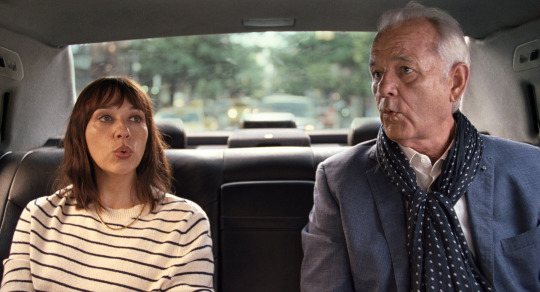
29. On the Rocks (Sofia Coppola)- Slight until the Mexican sojourn, which expands the scope and makes the film even more psychosexual than before. At times it feels as if Coppola is actively simplifying, rather than diving into the race and privilege questions that the Murray character all but demands.
As for Murray, is the film 50% worse without him? 70%? I don't know if you can run in supporting categories if you're the whole reason the film exists.
28. Mangrove (Steve McQueen)- The first part of the film seemed repetitive and broad to me. But once it settled in as a courtroom drama, the characterization became more shaded, and the filmmaking itself seemed more fluid. I ended up being quite outraged and inspired.
27. Shirley (Josephine Decker)- Josephine Decker emerges as a real stylist here, changing her foggy, impressionistic approach not one bit with a little more budget. Period piece and established actors be damned--this is still as much of a reeling fever dream as Madeline's Madeline. Both pieces are a bit too repetitive and nasty for my taste, but I respect the technique.
Here's my mandatory "Elisabeth Moss is the best" paragraph. While watching her performance as Shirley Jackson, I thought about her most famous role as Peggy on Mad Men, whose inertia and need to prove herself tied her into confidence knots. Shirley is almost the opposite: paralyzed by her worldview, certain of her talent, rejecting any empathy. If Moss can inhabit both characters so convincingly, she can do anything.
26. An American Pickle (Brandon Trost)- An American Pickle is the rare comedy that could actually use five or ten extra minutes, but it's a surprisingly heartfelt and wholesome stretch for Rogen, who is earnest in the lead roles.
25. The King of Staten Island (Judd Apatow)- At two hours and fifteen minutes, The King of Staten Island is probably the first Judd Apatow film that feels like the exact right length. For example, the baggy date scene between a gracious Bill Burr and a faux-dowdy Marisa Tomei is essential, the sort of widening of perspective that something like Trainwreck was missing.
It's Pete Davidson's movie, however, and though he has never been my cup of tea, I think he's actually quite powerful in his quiet moments. The movie probes some rare territory--a mentally ill man's suspicion that he is unlovable, a family's strategic myth-making out of respect for the dead. And when Davidson shows up at the firehouse an hour and fifteen minutes in, it feels as if we've built to a last resort.
24. Swallow (Carlo Mirabella-Davis)- The tricky part of this film is communicating Hunter's despair, letting her isolation mount, but still keeping her opaque. It takes a lot of visual discipline to do that, and Claudio Mirabella-Davis is up to the task. This ends up being a much more sympathetic, expressive movie than the plot description might suggest.
(In the tie dispute, Hunter and Richie are both wrong. That type of silk--I couldn't tell how pebbled it was, but it's probably a barathea weave-- shouldn't be ironed directly, but it doesn't have to be steamed. On a low setting, you could iron the back of the tie and be fine.)
23. The Vast of Night (Andrew Patterson)- I wanted a bit more "there" there; The film goes exactly where I thought it would, and there isn't enough humor for my taste. (The predictability might be a feature, not a bug, since the film is positioned as an episode of a well-worn Twilight Zone-esque show.)
But from a directorial standpoint, this is quite a promising debut. Patterson knows when to lock down or use silence--he even cuts to black to force us to listen more closely to a monologue. But he also knows when to fill the silence. There's a minute or so when Everett is spooling tape, and he and Fay make small talk about their hopes for the future, developing the characters' personalities in what could have been just mechanics. It's also a refreshingly earnest film. No one is winking at the '50s setting.
I'm tempted to write, "If Andrew Patterson can make this with $1 million, just imagine what he can do with $30 million." But maybe people like Shane Carruth have taught us that Patterson is better off pinching pennies in Texas and following his own muse.
22. Martin Eden (Pietro Marcello)- At first this film, adapted from a picaresque novel by Jack London, seemed as if it was hitting the marks of the genre. "He's going from job to job and meeting dudes who are shaping his worldview now." But the film, shot in lustrous Super 16, won me over as it owned the trappings of this type of story, forming a character who is a product of his environment even as he transcends it. By the end, I really felt the weight of time.
You want to talk about something that works better in novels than films though? When a passionate, independent protagonist insists that a woman is the love of his life, despite the fact that she's whatever Italians call a wet blanket. She's rich, but Martin doesn't care about her money. He hates her family and friends, and she refuses to accept him or his life pursuits. She's pretty but not even as pretty as the waitress they discuss. Tell me what I'm missing here. There's archetype, and there's incoherence.
21. Bacurau (Kleber Mendonca Filho and Juliano Dornelles)- Certain images from this adventurous film will stick with me, but I got worn out after the hard reset halfway through. As entranced as I was by the mystery of the first half, I think this blood-soaked ensemble is better at asking questions than it is at answering them.
20. Let Them All Talk (Steven Soderbergh)- The initial appeal of this movie might be "Look at these wonderful actresses in their seventies getting a movie all to themselves." And the film is an interesting portrait of ladies taking stock of relationships that have spanned decades. But Soderbergh and Eisenberg handle the twentysomething Lucas Hedges character with the same openness and empathy. His early reasoning for going on the trip is that he wants to learn from older women, and Hedges nails the puppy-dog quality of a young man who would believe that. Especially in the scenes of aspirational romance, he's sweet and earnest as he brushes his hair out of his face.
Streep plays Alice Hughes, a serious author of literary fiction, and she crosses paths with Kelvin Kranz, a grinder of airport thrillers. In all of the right ways, Let Them All Talk toes the line between those two stances as an entertaining, jaunty experiment that also shoulders subtextual weight. If nothing else, it's easy to see why a cruise ship's counterfeit opulence, its straight lines at a lean, would be visually engaging to Soderbergh. You can't have a return to form if your form is constantly evolving.

19. Dick Johnson Is Dead (Kirsten Johnson)- Understandably, I don't find the subject as interesting as his own daughter does, and large swaths of this film are unsure of what they're trying to say. But that's sort of the point, and the active wrestling that the film engages in with death ultimately pays off in a transcendent moment. The jaw-dropping ending is something that only non-fiction film can achieve, and Johnson's whole career is about the search for that sort of serendipity.
18. Da 5 Bloods (Spike Lee)- Delroy Lindo is a live-wire, but his character is the only one of the principals who is examined with the psychological depth I was hoping for. The first half, with all of its present-tense flourishes, promises more than the gunfights of the second half can deliver. When the film is cooking though, it's chock full of surprises, provocations, and pride.
17. Never Rarely Sometimes Always (Eliza Hittmann)- Very quickly, Eliza Hittmann has established herself as an astute, empathetic director with an eye for discovering new talent. I hope that she gets to make fifty more movies in which she objectively follows laconic young people. But I wanted to like this one more than I did. The approach is so neutral that it's almost flat to me, lacking the arc and catharsis of her previous film, Beach Rats. I still appreciate her restraint though.
GREAT MOVIES
16. Young Ahmed (Jean-Pierre Dardenne and Luc Dardenne)- I don't think the Dardennes have made a bad movie yet, and I'm glad they turned away from the slight genre dipping of The Unknown Girl, the closest to bad that they got. Young Ahmed is a lean, daring return to form.
Instead of following an average person, as they normally do, the Dardenne Brothers follow an extremist, and the objectivity that usually generates pathos now serves to present ambiguity. Ahmed says that he is changing, that he regrets his actions, but we never know how much of his stance is a put-on. I found myself wanting him to reform, more involved than I usually am in these slices of life. Part of it is that Idir Ben Addi looks like such a normal, young kid, and the Ahmed character has most of the qualities that we say we want in young people: principles, commitment, self-worth, reflection. So it's that much more destructive when those qualities are used against him and against his fellow man.
15. World of Tomorrow Episode Three: The Absent Destinations of David Prime (Don Hertzfeldt)- My dad, a man whom I love but will never understand, has dismissed modern music before by claiming that there are only so many combinations of chords. To him, it's almost impossible to do something new. Of course, this is the type of thing that an uncreative person would say--a person not only incapable of hearing the chords that combine notes but also unwilling to hear the space between the notes. (And obviously, that's the take of a person who doesn't understand that, originality be damned, some people just have to create.)
Anyway, that attitude creeps into my own thinking more than I would like, but then I watch something as wholly original as World of Tomorrow Episode Three. The series has always been a way to pile sci-fi ideas on top of each other to prove the essential truths of being and loving. And this one, even though it achieves less of a sense of yearning than its predecessor, offers even more devices to chew on. Take, for example, the idea that Emily sends her message from the future, so David's primitive technology can barely handle it. In order to move forward with its sophistication, he has to delete any extraneous skills for the sake of computer memory. So out of trust for this person who loves him, he has to weigh whether his own breathing or walking can be uninstalled as a sacrifice for her. I thought that we might have been done describing love, but there it is, a new metaphor. Mixing futurism with stick figures to get at the most pure drive possible gave us something new. It's called art, Dad.
14. On the Record (Kirby Dick and Amy Ziering)- We don't call subjects of documentaries "stars" for obvious reasons, but Drew Dixon kind of is one. Her honesty and wisdom tell a complete story of the #MeToo movement. Kirby Dick and Amy Ziering take their time developing her background at first, not because we need to "gain sympathy" or "establish credibility" for a victim of sexual abuse, but because showing her talent and enthusiasm for hip-hop A&R makes it that much more tragic when her passion is extinguished. Hell, I just like the woman, so spending a half-hour on her rise was pleasurable in and of itself.
This is a gut-wrenching, fearless entry in what is becoming Dick and Ziering's raison d'etre, but its greatest quality is Dixon's composed reflection. She helped to establish a pattern of Russell Simmons's behavior, but she explains what happened to her in ways I had never heard before.
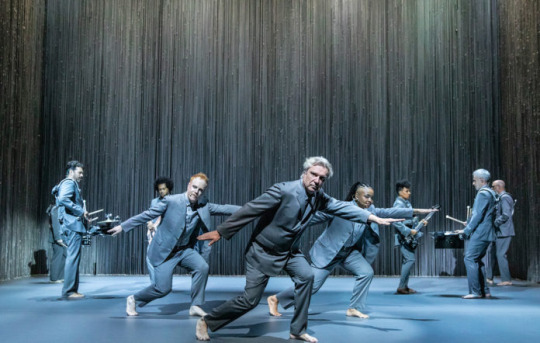
13. David Byrne’s American Utopia (Spike Lee)- I'm often impressed by the achievements that puzzle me: How did they pull that off? But I know exactly how David Byrne pulled off the impish but direct precision of American Utopia: a lot of hard work.
I can't blame Spike Lee for stealing a page from Demme's Stop Making Sense: He denies us a close-up of any audience members until two-thirds of the way through, when we get someone in absolute rapture.
12. One Night in Miami... (Regina King)- We've all cringed when a person of color is put into the position of speaking on behalf of his or her entire race. But the characters in One Night in Miami... live in that condition all the time and are constantly negotiating it. As Black public figures in 1964, they know that the consequences of their actions are different, bigger, than everyone else's. The charged conversations between Malcolm X and Sam Cooke are not about whether they can live normal lives. They're way past that. The stakes are closer to Sam Cooke arguing that his life's purpose aligns with the protection and elevation of African-Americans while Malcolm X argues that those pursuits should be the same thing. Late in the movie, Cassius Clay leaves the other men, a private conversation, to talk to reporters, a public conversation. But the film argues that everything these men do is always already public. They're the most powerful African-Americans in the country, but their lives are not their own. Or not only their own.
It's true that the first act has the clunkiness and artifice of a TV movie, but once the film settles into the motel room location and lets the characters feed off one another, it's gripping. It's kind of unfair for a movie to get this many scenes of Leslie Odom Jr. singing, but I'll take it.
11. Saint Frances (Alex Thompson)- Rilke wrote, "Perhaps everything terrible is in its deepest being something helpless that wants help from us." The characters' behavior in Saint Frances--all of these fully formed characters' behavior--made me think of that quotation. When they lash out at one another, even at their nastiest, the viewer has a window into how they're expressing pain they can't verbalize. The film is uneven in its subtlety, but it's a real showcase for screenwriter and star Kelly O'Sullivan, who is unflinching and dynamic in one of the best performances of the year. Somebody give her some of the attention we gave to Zach Braff for God's sake.
10. Boys State (Jesse Moss and Amanda McBaine)- This documentary is kind of a miracle from a logistical standpoint. From casting interviews beforehand, lots of editing afterwards, or sly note-taking once the conference began, McBaine and Moss happened to select the four principals who mattered the most at the convention, then found them in rooms full of dudes wearing the same tucked-in t-shirt. By the way, all of the action took place over the course of one week, and by definition, the important events are carved in half.
To call Boys State a microcosm of American politics is incorrect. These guys are forming platforms and voting in elections. What they're doing is American politics, so when they make the same compromises and mistakes that active politicians do, it produces dread and disappointment. So many of the boys are mimicking the political theater that they see on TV, and that sweaty sort of performance is going to make a Billy Mitchell out of this kid Ben Feinstein, and we'll be forced to reckon with how much we allow him to evolve as a person. This film is so precise, but what it proves is undeniably messy. Luckily, some of these seventeen-year-olds usher in hope for us all.
If nothing else, the film reveals the level to which we're all speaking in code.
9. The Nest (Sean Durkin)- In the first ten minutes or so of The Nest, the only real happy minutes, father and son are playing soccer in their quaint backyard, and the father cheats to score on a children's net before sliding on the grass to rub in his victory. An hour later, the son kicks the ball around by himself near a regulation goal on the family's massive property. The contrast is stark and obvious, as is the symbolism of the dead horse, but that doesn't mean it's not visually powerful or resonant.
Like Sean Durkin's earlier film, Martha Marcy May Marlene, the whole of The Nest is told with detail of novelistic scope and an elevation of the moment. A snippet of radio that mentions Ronald Reagan sets the time period, rather than a dateline. One kid saying "Thanks, Dad" and another kid saying, "Thanks, Rory" establishes a stepchild more elegantly than any other exposition might.
But this is also a movie that does not hide what it means. Characters usually say exactly what is on their minds, and motivations are always clear. For example, Allison smokes like a chimney, so her daughter's way of acting out is leaving butts on the window sill for her mother to find. (And mother and daughter both definitely "act out" their feelings.) On the other hand, Ben, Rory's biological son, is the character least like him, so these relationships aren't too directly parallel. Regardless, Durkin uses these trajectories to cast a pall of familial doom.
8. Sorry We Missed You (Sean Durkin)- Another precisely calibrated empathy machine from Ken Loach. The overwhelmed matriarch, Abby, is a caretaker, and she has to break up a Saturday dinner to rescue one of her clients, who wet herself because no one came to help her to the bathroom. The lady is embarrassed, and Abby calms her down by saying, "You mean more to me than you know." We know enough about Abby's circumstances to realize that it's sort of a lie, but it's a beautiful lie, told by a person who cares deeply but is not cared for.
Loach's central point is that the health of a family, something we think of as immutable and timeless, is directly dependent upon the modern industry that we use to destroy ourselves. He doesn't have to be "proven" relevant, and he didn't plan for Covid-19 to point to the fragility of the gig economy, but when you're right, you're right.
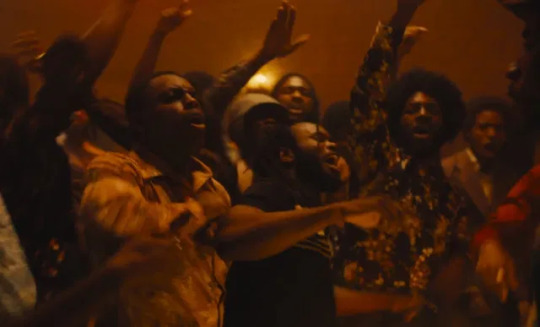
7. Lovers Rock (Steve McQueen)- swear to you I thought: "This is an impeccable depiction of a great house party. The only thing it's missing is the volatile dude who scares away all the girls." And then the volatile dude who scares away all the girls shows up.
In a year short on magic, there are two or three transcendent moments, but none of them can equal the whole crowd singing along to "Silly Games" way after the song has ended. Nothing else crystallizes the film's note of celebration: of music, of community, of safe spaces, of Black skin. I remember moments like that at house parties, and like all celebrations, they eventually make me sad.
6. Crip Camp: A Disability Revolution (Nicole Newnham and James Lebrecht)- I held off on this movie because I thought that I knew what it was. The setup was what I expected: A summer camp for the disabled in the late '60s takes on the spirit of the time and becomes a haven for people who have not felt agency, self-worth, or community anywhere else. But that's the right-place-right-time start of a story that takes these figures into the '80s as they fight for their rights.
If you're anything like my dumb ass, you know about 504 accommodations from the line on a college syllabus that promises equal treatment. If 2020 has taught us anything though, it's that rights are seized, not given, and this is the inspiring story of people who unified to demand what they deserved. Judy Heumann is a civil rights giant, but I'm ashamed to say I didn't know who she was before this film. If it were just a history lesson that wasn't taught in school, Crip Camp would still be valuable, but it's way more than that.
5. Palm Springs (Max Barbakow)- When explaining what is happening to them, Andy Samberg's Nyles twirls his hand at Cristin Milioti's Sara and says, "It's one of those infinite time-loop scenarios." Yeah, one of those. Armed with only a handful of fictional examples, she and the audience know exactly what he means, and the continually inventive screenplay by Andy Siara doesn't have to do any more explaining. In record time, the film accelerates into its premise, involves her, and sets up the conflict while avoiding the claustrophobia of even Groundhog Day. That economy is the strength that allows it to be as funny as it is. By being thrifty with the setup, the savings can go to, say, the couple crashing a plane into a fiery heap with no consequences.
In some accidental ways, this is, of course, a quarantine romance as well. Nyles and Sara frustratingly navigate the tedious wedding as if they are play-acting--which they sort of are--then they push through that sameness to grow for each other, realizing that dependency is not weakness. The best relationships are doing the same thing right now.
Although pointedly superficial--part of the point of why the couple is such a match--and secular--I think the notion of an afterlife would come up at least once--Palm Springs earns the sincerity that it gets around to. And for a movie ironic enough to have a character beg to be impaled so that he doesn't have to sit in traffic, that's no small feat.
4. The Assistant (Kitty Green)- A wonder of Bressonian objectivity and rich observation, The Assistant is the rare film that deals exclusively with emotional depth while not once explaining any emotions. One at a time, the scrape of the Kleenex box might not be so grating, the long hallway trek to the delivery guy might not be so tiring, but this movie gets at the details of how a job can destroy you in ways that add up until you can't even explain them.
3. Promising Young Woman (Emerald Fennell)- In her most incendiary and modern role, Carey Mulligan plays Cassie, which is short for Cassandra, that figure doomed to tell truths that no one else believes. The web-belted boogeyman who ruined her life is Al, short for Alexander, another Greek who is known for his conquests. The revenge story being told here--funny in its darkest moments, dark in its funniest moments--is tight on its surface levels, but it feels as if it's telling a story more archetypal and expansive than that too.
An exciting feature debut for its writer-director Emerald Fennell, the film goes wherever it dares. Its hero has a clear purpose, and it's not surprising that the script is willing to extinguish her anger halfway through. What is surprising is the way it renews and muddies her purpose as she comes into contact with half-a-dozen brilliant one- or two-scene performances. (Do you think Alfred Molina can pull off a lawyer who hates himself so much that he can't sleep? You would be right.)
Promising Young Woman delivers as an interrogation of double standards and rape culture, but in quiet ways it's also about our outsized trust in professionals and the notion that some trauma cannot be overcome.
INSTANT CLASSICS
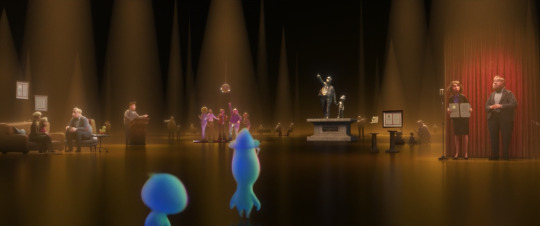
2. Soul (Pete Docter)- When Pete Docter's Up came out, it represented a sort of coronation for Pixar: This was the one that adults could like unabashedly. The one with wordless sequences and dead children and Ed Asner in the lead. But watching it again this week with my daughter, I was surprised by how high-concept and cloying it could be. We choose not to remember the middle part with the goofy dog stuff.
Soul is what Up was supposed to be: honest, mature, stirring. And I don't mean to imply that a family film shouldn't make any concessions to children. But Soul, down to the title, never compromises its own ambition. Besides Coco, it's probably the most credible character study that Pixar has ever made, with all of Joe's growth earned the hard way. Besides Inside Out, it's probably the wittiest comedy that Pixar has ever made, bursting with unforced energy.
There's a twitter fascination going around about Dez, the pigeon-figured barber character whose scene has people gushing, "Crush my windpipe, king" or whatever. Maybe that's what twitter does now, but no one fantasized about any characters in Up. And I count that as progress.
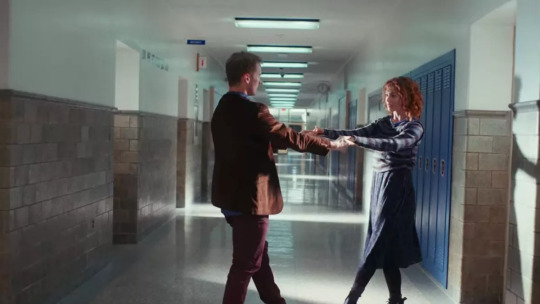
1. I’m Thinking of Ending Things (Charlie Kaufman)- After hearing that our name-shifting protagonist moonlights as an artist, a no-nonsense David Thewlis offers, "I hope you're not an abstract artist." He prefers "paintings that look like photographs" over non-representational mumbo-jumbo. And as Jessie Buckley squirms to try to think of a polite way to talk back, you can tell that Charlie Kaufman has been in the crosshairs of this same conversation. This morose, scary, inscrutable, expressionist rumination is not what the Netflix description says it is at all, and it's going to bother nice people looking for a fun night in. Thank God.
The story goes that Steven Spielberg and George Lucas, when constructing Raiders of the Lost Ark, sought to craft a movie that was "only the good parts" with little of the clunky setup that distracted from action. What we have here is a Charlie Kaufman movie with only the Charlie Kaufman moments, less interested than ever before at holding one's hand. The biting humor is here, sometimes aimed at philistines like the David Thewlis character above, sometimes at the niceties that we insist upon. The lonely horror of everyday life is here, in the form of missed calls from oneself or the interruption of an inner monologue. Of course, communicating the overwhelming crush of time, both unknowable and familiar, is the raison d'etre.
A new pet motif seems to be the way that we don't even own our own knowledge. The Young Woman recites "Bonedog" by Eva H.D., which she claims/thinks she wrote, only to find Jake's book open to that page, next to a Pauline Kael book that contains a Woman Under the Influence review that she seems to have internalized later. When Jake muses about Wordsworth's "Lucy Poems," it starts as a way to pass the time, then it becomes a way to lord his education over her, then it becomes a compliment because the subject resembles her, then it becomes a way to let her know that, in the grand scheme of things, she isn't that special at all. This film jerks the viewer through a similar wintry cycle and leaves him with his own thoughts. It's not a pretty picture, but it doesn't look like anything else.
8 notes
·
View notes
Photo

Commentary on the movie: “She Hate Me”
My score C+ Performance: C Story: C Entertainment Elements: B
A Spike Lee joint! Good or bad, it’s not boring most of the time.
It’s always good to see Q-Tip.
I’m just going to call Anthony Mickie’s character “dude”. He is the main protagonist.
If those two are cool enough to have a deep conversation then would the doctor should know if the dude “Jack” is married or not.
“A man should be married by the time his 31, thus increasing himself to be young enough to enjoy playing with his kids, yet old enough at the same time… to prove for said family.” Interesting point of view. In a movie about knocking up lesbians, some how, that quote had to be connected.
The doctor name is Herman Schiller. In the real world he is an Argentine journalist.
The doctor admitted suicide because of what exactly?
“Call an ambulance” For what? No one can survive that fall from a corporate building. Except Vin Diesel in the Fast and the Furious movies.
This woman is heartless, in a Spike Lee movie, she must represent the heartlessness of most white people.
The doctor is a snitch! Jack is black, you would think he would turn the other way. Nope! He decides to snitching instead.
“The American public are a bunch of fucking morons, you know it and I know it, they will buy what we sell.” That white woman again.
Did he just snitch for the company he works for? First thing first, quit than snitch. Second, you’re black, the hood taught you better than that.
So he got fired for snitching, man the hood is laughing at you right now. You have to remember to stay black.
Kerry Washington was sexy in 2004, and she still is.
You can’t knock on a black man door uninvited and walk in, you trying to get shot?
Ex: “I want you to be the father of my child.” Me: Get the Fuck outta here.
The lesbian couple both want to be pregnant at the same time. Spike Lee is a freaky ass person.
Hold on, lesbians women paying 10,000 to knock them up? 10,000? GTFOH!
Jack: “But you’re lesbians right?” Them: “We’re businesswoman” Me: So are prostitutes!
His bank account frozen. You can’t get a job. That’s what happens when you snitch. The hood tried to tell you.
So, he became a prostitute getting pimp by his ex fiance? LOL!
So, your dad is Jim Brown and you are a snitch and sucker? (Insert Kanye West meme) How Sway?
I like his paps more than I like him.
It’s Spike Lee sister Joie Lee.
He’s father would be piss to know that his a hoe with a pimp.
One of the lesbians just told him “Just strip Bitch!” Dude got no self respect.
“Now you know what it feels like to be a sexual object.” The look on the Jack’s face reminds me of the teenagers in those “Scared Straight” shows.
Spike Lee is bring up the issues about the LGBT committee. Look at him trying to be open minded.
The dude has wild opinions about lesbians. That’s because he lost his fiancee to one.
“I deserve the choice…, and you took that away, by not being honest.” Why not to lie in relationships.
Wait, so this dude is able to impregnate all these girl in just one session?
“We see you as dick, balls, and sperm.” What person would take that DISRESPECT in their own home. She ain’t paying rent.
“Knocking up a bunch of lesbians, that’s some freaky shit.”
“A price can be put on everything.”
So even in a Spike Lee movie, the black man still goes to jail.
At least this wasn’t boring. It was interesting. I think I like the movie but dislike the main protagonist. Two different stories going on but only one was interesting, and of course it’s the lesbians part. The movie has a few one liners and some powerful scenes. Sex senses was funny at times. Overall, it’s alright.
2 notes
·
View notes
Link
The Confessions of a Video Vixen Interview by Kam Williams
When I first interviewed her a couple of years ago, Karrine Steffans was making the transition from Hip-Hop ho to legitimate Hollywood actress. She was then enjoying her big screen debut as Larenz Tate's wife in A Man Apart, an action-adventure flick starring Vin Diesel. During that tame tete-a-tete, she never let on about the sordid, suicidal, sexually-depraved, alcohol and drug-addicted life she had been leading, despite being a single-mom. Nor did she discuss bottoming-out after an overdose which left her broke, blacklisted and living in a car with her little boy.Because Karrine was such a shameless name-dropper, I distinctly remember repeatedly asking her about all of her famous friends. But every inquiry led to a very dull dead-end. Now, she has just published a tell-all autobiography, Confessions of a Video Vixen, which sits high atop most best seller lists. In it, she admits to sleeping with Puff Daddy, DMX, Xzibit, Jay-Z, Ja Rule, Doctor Dre, Ice-T, Bobby Brown, Usher, Shaquille O'Neal and Vin Diesel, to name a few.So, I figured it was high time I track Karrine down again to find out why she lied to me the first go-round. Furthermore, I needed to get the lowdown on what life in the fast lane had been like for this naughty girl affectionately referred to as "Superhead" by the gangsta rappers and the rest of the long list of famous lovers who shared her bed.
KW: Why were you so very tight-lipped about the nature of your relationships with all the celebrities you knew the first time we spoke? KS: Well, that wasn't the appropriate time. We were talking about A Man Apart. Everything has its own time and space. And there are some people that I mention in Confessions, and some that I still didn't.
KW: Yeah, like in the book, you hid the identity of a very famous lover of yours you called Papa. Care to share his name now?
KS: I'm still not going to tell you.
KW: Why not, when you've confessed to sleeping with so many others?
KS: At this point it's inappropriate, because of a promise I made to him that he would remain anonymous.
KW: How about a hint?
KS: What I will say for my readers is that Confessions has a really big clue about who he is.
KW: What has been the reaction of the lovers you did name to the book?
KS: There's been no reaction. The celebrities named in the book are fine.It's kind of surprised me that people find what I said so amazing, because people who are inside of the industry know all the stuff that I could've said.
KW: But let's take someone like Ja Rule, who has a wife and kids. I would imagine that he might be very upset.
KS: I'm sure it's uncomfortable. But, no, he's not upset. This is not news to him, or his wife, or his family. It's not like his wife just found out.She knows her husband and that I was not the only girl. He had hundreds at that time, and I'm sure thousands over the years as he traveled the world.So, it's not like anyone's surprised, even if it's uncomfortable.
KW: Do you have any misgivings about tarnishing the image of so many icons?KS: I'm surprised that people think they’re important. To me they’re not.They’re just people you run across. The names I gave away in Vixen are throwaway names. They’re nobodies compared to who else I have in my phone book.
KW: Like who?
KS: There are some people who are very powerful who I will never name, because I want to be able to work in this town when I'm done. That's why it's easy to give you throwaway names like Jay-Z. I'm not in the music business. I don't work for Def Jam.
KW: So, you see Jay-Z as a nobody?
KS: Not that he's a nobody, just nobody special.
KW: Did you mean to imply that Puff Daddy, I mean, Diddy and Xzibit are gay when you mentioned their taking you to a gay nightclub?
KS: I'm not implying anything. That was an experience of mine. I'm just saying what happened and what was said. Any conclusions would have to be drawn by the readers.
KW: Did you really sleep with Vin Diesel? I've interviewed him several times, and he's always sounded like such a gentleman. He even told me he wasn't a womanizer, but that he was saving himself for the right woman.
KS: [laughs] Really? That's a load of [expletive]. He wasn't saving himself when I was with him. It bothers me that people find it necessary to paint pictures. Truth and honesty is my thing.
KW: I'm gonna ask him about you the next time I speak to him. Why did you put so many sexy photos of yourself scantily-clad in the book, if you've put that lifestyle behind you?
KS: I'm not uncomfortable about anything I've put in the book. It's just the truth. Those pictures are fine. They’re pictures from my past, of things that I have done with people I have known. They’re from stages of my life, and all of that is relevant to this book.
KW: The nicest picture is the one of you and your son, Naiim. Was he scarred by all the two of you went through? How is he doing?
KS: All these things happened a long time ago. My son is seven, and he doesn't remember any of that stuff. For the last four years, he's spent every day with me. Thankfully, I got my wild ways over with while he was still basically a newborn. He was two and three years-old.
KW: Is there any truth to the rumor that you're now dating Bill Maher of Politically Incorrect?
KS: Absolutely.
KW: How is that relationship?
KS: Wonderful! It's the best I've ever had?
KW: Does he have a good relationship with your son, too?
KS: Nope. They don't have one. They don't need one. It's unnecessary. Why would I introduce my son to a man I've only known for four months, no matter how great the relationship is. If Bill and I are together half a year, maybe I'll consider it. But even then, it's still dating. There's no need for them to meet each other.
KW: So, does your son then have a relationship with that rapper who's his biological father?
KS: They don't have a relationship. They don't know each other. They never have.
KW: Do you consider yourself totally through with that self-destructive lifestyle?KS: I haven't spoken to any of those people, for the most part, for over four years. There are some I'm still cool with. We’ll see each other and speak, say, ’How you doin’?’ and keep going.
KW: What enabled you to move on from playing the party girl?
KS: Most people grow. The person you're reading about in that book is 21.I'm 27 now. You would hope that I would grow and expand and change just from the natural progression of life. And that's what I've done.
KW: Why kiss and tell?
KS: It was easy for me to write about it, because I'm so far removed from that character. The person I was in that book was a character. She's not even who I am today. People who know me, recognize a definite difference in my poise and in my personality, because I've grown.
KW: I agree you don't sound like the same person, but maybe you had drug problems when I spoke to you.
KS: At that time, no. I was already out of that lifestyle by the time I talked to you.
KW: Have you burned too many bridges to return to acting?
KS: No, I have no interest in it at all. It doesn't move me whatsoever.
KW: Why not?
KS: Because I'm a power fanatic. I like to own things, and have them be mine. Acting doesn't belong to you, if you're not the writer or the director.
KW: So, what will you work on next, then?
KS: The movie version of this book. They’re bidding on the rights to it right now.KW: You recently had a tiff with Tyra Banks during the taping of her new talk show. Do you care to share your side of it?
KS: There are a few things that tend to infuriate me. One is ignorance, because I have become accustomed to speaking to very intelligent people like Gore Vidal and Al Franken on a regular basis, since dating Bill Maher.Therefore, when I'm in an interview with someone who is not intelligent, but flat-out ignorant, idiotic and stupid, or just an ass, it really gives me a headache.
KW: So, how do you deal with jerks like that?
KS: I've walked out on interviews, when they’re so beneath me and what I'm trying to say. And then there are people like Tyra who are hypocrites. Women especially, who have slept their way through their whole careers. And it's not a secret within the Hollywood circle.
KW: So, Tyra's been around the block.
KS: I've always heard about it from men we've both slept with.
KW: I'd think that the two of you should have had a great conversation in that case, swapping stories.
KS: No, not 15 years later, now that she has her own talk show where she's well-groomed, all made up, and has on a $5,000 wig. don't get me wrong, Tyra's done well for herself. You have to applaud her for all that she's achieved, coming from that model world, and expanding, which is wonderful.But let's not pretend that you haven't done some of the people and things that I've done.
KW: So, Tyra didn't want to ’fess up?
KS: Anyone in that position, in an interviewer's position, to do it well, should always remain objective. That's part of the job.
KW: So, you feel that she attacked you instead of interviewing you?
KS: When someone talks to me, and they’re personally attacking me, because there's someone in my book that she's been with, because of the people that she's slept with that we have in common. When you're making me seem like the bad one, like only I've slept around, like only I've dated famous people, then I find it necessary to say what you've done. We should just be honest.
KW: So, she made it personal?
KS: Yeah, and then I felt the need to get personal back.
KW: So, are you saying Tyra slept her way to the top?
KS: I have a list of names of people that she's been with, including women.Let's not go there, because I am the truth-teller. And I'll tell it all. So, hopefully, she realizes that now, and she’ll stay clear out of my way.
KW: Do you hope your book will warn young girls of the sexual exploitation, drugs and other pitfalls of appearing in gangsta’ videos which await them when they arrive in Hollywood.
KS: Yes, that's what's happening. Girls are getting it. They’re understanding that the life they thought existed in Hollywood doesn't really exist. It just doesn't. I'm not just saying that because my past is a little skewed and I had a hard time. Even now that my life is great, and I'm way better off physically, financially and emotionally, I can still look at it and say, this place is such bull-[expletive]! And it is.
KW: Where do you go from here, professionally?
KS: I'm just going to continue what I've been doing, which is writing. The next book is the paperback version of Confessions, which will have more information. Then, I'm writing a novel for next summer, I believe. And I'll continue to write. I already started a book on relationships, on being a woman, and how we mess up our relationships trying to be too independent. I am a writer. Video Vixen was not a fluke. This is what I do, and it's my job now.
1 note
·
View note
Text
The Sweet (Albeit Confusing) Way 'The Fate of the Furious' Pays Tribute to Paul Walker
Furious 7 was for Paul -- a dedication card at the end of the last Fast and Furious installment read, "For Paul," honoring the late Paul Walker, who died during production. The Fate of the Furious, meanwhile, pays its respects to Brian O'Connor, the FBI agent-turned-street racing outlaw Walker played in six movies.
Spoilers for one major plotline in F8 below.
The setup for the tribute is a bit involved, but the gist of it is this: Cipher (Charlize Theron) is a megalomaniac hacker who holds Dominic Toretto's (Vin Diesel) son hostage in order to force Dom to do her bidding. Yup, Dom has a son, and the mother is Elsa Pataky's character, Elena, who early on informs Dom that she calls their son Michael (his middle name) because a father should be the one to name his child.
'THE FATE OF THE FURIOUS' REVIEW: Believe It or Not, the Family Is Even Faster and More Furious
If you're muttering, "Ho'dup...I'm going to need a little more than the gist of this. Dom has a kid now? Since when? And it's not with Letty? Also, who's Elena?" just know that you are in good company (My company. Because I was perplexed as f**k, too). The timeline of this is a bit unclear: Elena Neves is the Rio de Janeiro police officer Dom fell for in Fast Five and later split with when his longtime love, Letty (Michelle Rodriguez), returned from the presumed dead. (Elena became a DSS agent alongside Dwayne Johnson's Luke Hobbs.) As Elena explains in F8, she found out she was pregnant around the time Letty returned -- meaning she likely got pregnant sometime between F5 and F6 -- and was planning to tell Dom after his honeymoon (which begins F8). However, F6 is set only a few months after F5 and at some point in there Tokyo Drift takes place, chronologically, which means that Elena had at least two movies' time to inform the father of her baby she was pregnant and also means she was certainly with child in Furious 7 when Deckard Shaw (Jason Statham) detonated a bomb that blew her and The Rock out a window and multiple stories down onto a SUV. Right around this point is when my brain seized and I realized I'd spent more time doing the math on this than I guarantee any of the Fast and Furious writer did. (The timeline is, honestly...wild.)
As far as Brian himself is concerned, he drove off into the proverbial -- and literal -- sunset at the end of Furious 7, retiring from any and all duties deemed fast or furious. He is briefly mentioned in Fate when Letty refuses to contact him or Mia (Jordana Brewster) after Dom goes "rogue."
During Fate of the Furious' final scene -- one of those dusk-set family gatherings the movies love to wind down with -- Dom raises his son for the ever-growing Toretto team, Lion King-style, and says, "Meet Brian." It's a sweet tribute, only slightly diluted by the fact that Brian is still alive and technically still exists in the F&F universe -- i.e. Brian Michael is just named after Dom's retired brother-in-law. (Admittedly, the gravitas I'm searching for would mean that Brian would have had to die in F7 and it would have been real tough to watch Walker's character die in any similar way to the actor at the time -- and now, as Diesel recently told ET, "I'm still reeling from the loss, the idea of continuing along without my brother, Pablo, and what that felt like and the complexities of that.") Anyway, it's nice. A bit confusing, but nice.
brightcove
#_revsp:new_provider_with_logo_342#_lmsid:a0VK0000001yfWcMAI#_uuid:77721f43-90b0-3dbb-84bc-05a0f143c347
0 notes
Text
The Sweet (Albeit Confusing) Way 'The Fate of the Furious' Pays Tribute to Paul Walker
Furious 7 was for Paul -- a dedication card at the end of the last Fast and Furious installment read, "For Paul," honoring the late Paul Walker, who died during production. The Fate of the Furious, meanwhile, pays its respects to Brian O'Connor, the FBI agent-turned-street racing outlaw Walker played in six movies.
Spoilers for one major plotline in F8 below.
The setup for the tribute is a bit involved, but the gist of it is this: Cipher (Charlize Theron) is a megalomaniac hacker who holds Dominic Toretto's (Vin Diesel) son hostage in order to force Dom to do her bidding. Yup, Dom has a son, and the mother is Elsa Pataky's character, Elena, who early on informs Dom that she calls their son Michael (his middle name) because a father should be the one to name his child.
'THE FATE OF THE FURIOUS' REVIEW: Believe It or Not, the Family Is Even Faster and More Furious
If you're muttering, "Ho'dup...I'm going to need a little more than the gist of this. Dom has a kid now? Since when? And it's not with Letty? Also, who's Elena?" just know that you are in good company (My company. Because I was perplexed as f**k, too). The timeline of this is a bit unclear: Elena Neves is the Rio de Janeiro police officer Dom fell for in Fast Five and later split with when his longtime love, Letty (Michelle Rodriguez), returned from the presumed dead. (Elena became a DSS agent alongside Dwayne Johnson's Luke Hobbs.) As Elena explains in F8, she found out she was pregnant around the time Letty returned -- meaning she likely got pregnant sometime between F5 and F6 -- and was planning to tell Dom after his honeymoon (which begins F8). However, F6 is set only a few months after F5 and at some point in there Tokyo Drift takes place, chronologically, which means that Elena had at least two movies' time to inform the father of her baby she was pregnant and also means she was certainly with child in Furious 7 when Deckard Shaw (Jason Statham) detonated a bomb that blew her and The Rock out a window and multiple stories down onto a SUV. Right around this point is when my brain seized and I realized I'd spent more time doing the math on this than I guarantee any of the Fast and Furious writer did. (The timeline is, honestly...wild.)
As far as Brian himself is concerned, he drove off into the proverbial -- and literal -- sunset at the end of Furious 7, retiring from any and all duties deemed fast or furious. He is briefly mentioned in Fate when Letty refuses to contact him or Mia (Jordana Brewster) after Dom goes "rogue."
During Fate of the Furious' final scene -- one of those dusk-set family gatherings the movies love to wind down with -- Dom raises his son for the ever-growing Toretto team, Lion King-style, and says, "Meet Brian." It's a sweet tribute, only slightly diluted by the fact that Brian is still alive and technically still exists in the F&F universe -- i.e. Brian Michael is just named after Dom's retired brother-in-law. (Admittedly, the gravitas I'm searching for would mean that Brian would have had to die in F7 and it would have been real tough to watch Walker's character die in any similar way to the actor at the time -- and now, as Diesel recently told ET, "I'm still reeling from the loss, the idea of continuing along without my brother, Pablo, and what that felt like and the complexities of that.") Anyway, it's nice. A bit confusing, but nice.
brightcove
#_revsp:new_provider_with_logo_342#_lmsid:a0VK0000001yfWcMAI#_uuid:77721f43-90b0-3dbb-84bc-05a0f143c347
0 notes
Text
The Sweet (Albeit Confusing) Way 'The Fate of the Furious' Pays Tribute to Paul Walker
Furious 7 was for Paul -- a dedication card at the end of the last Fast and Furious installment read, "For Paul," honoring the late Paul Walker, who died during production. The Fate of the Furious, meanwhile, pays its respects to Brian O'Connor, the FBI agent-turned-street racing outlaw Walker played in six movies.
Spoilers for one major plotline in F8 below.
The setup for the tribute is a bit involved, but the gist of it is this: Cipher (Charlize Theron) is a megalomaniac hacker who holds Dominic Toretto's (Vin Diesel) son hostage in order to force Dom to do her bidding. Yup, Dom has a son, and the mother is Elsa Pataky's character, Elena, who early on informs Dom that she calls their son Michael (his middle name) because a father should be the one to name his child.
'THE FATE OF THE FURIOUS' REVIEW: Believe It or Not, the Family Is Even Faster and More Furious
If you're muttering, "Ho'dup...I'm going to need a little more than the gist of this. Dom has a kid now? Since when? And it's not with Letty? Also, who's Elena?" just know that you are in good company (My company. Because I was perplexed as f**k, too). The timeline of this is a bit unclear: Elena Neves is the Rio de Janeiro police officer Dom fell for in Fast Five and later split with when his longtime love, Letty (Michelle Rodriguez), returned from the presumed dead. (Elena became a DSS agent alongside Dwayne Johnson's Luke Hobbs.) As Elena explains in F8, she found out she was pregnant around the time Letty returned -- meaning she likely got pregnant sometime between F5 and F6 -- and was planning to tell Dom after his honeymoon (which begins F8). However, F6 is set only a few months after F5 and at some point in there Tokyo Drift takes place, chronologically, which means that Elena had at least two movies' time to inform the father of her baby she was pregnant and also means she was certainly with child in Furious 7 when Deckard Shaw (Jason Statham) detonated a bomb that blew her and The Rock out a window and multiple stories down onto a SUV. Right around this point is when my brain seized and I realized I'd spent more time doing the math on this than I guarantee any of the Fast and Furious writer did. (The timeline is, honestly...wild.)
As far as Brian himself is concerned, he drove off into the proverbial -- and literal -- sunset at the end of Furious 7, retiring from any and all duties deemed fast or furious. He is briefly mentioned in Fate when Letty refuses to contact him or Mia (Jordana Brewster) after Dom goes "rogue."
During Fate of the Furious' final scene -- one of those dusk-set family gatherings the movies love to wind down with -- Dom raises his son for the ever-growing Toretto team, Lion King-style, and says, "Meet Brian." It's a sweet tribute, only slightly diluted by the fact that Brian is still alive and technically still exists in the F&F universe -- i.e. Brian Michael is just named after Dom's retired brother-in-law. (Admittedly, the gravitas I'm searching for would mean that Brian would have had to die in F7 and it would have been real tough to watch Walker's character die in any similar way to the actor at the time -- and now, as Diesel recently told ET, "I'm still reeling from the loss, the idea of continuing along without my brother, Pablo, and what that felt like and the complexities of that.") Anyway, it's nice. A bit confusing, but nice.
brightcove
#_revsp:new_provider_with_logo_342#_lmsid:a0VK0000001yfWcMAI#_uuid:77721f43-90b0-3dbb-84bc-05a0f143c347
0 notes
Text
The Sweet (Albeit Confusing) Way 'The Fate of the Furious' Pays Tribute to Paul Walker
Furious 7 was for Paul -- a dedication card at the end of the last Fast and Furious installment read, "For Paul," honoring the late Paul Walker, who died during production. The Fate of the Furious, meanwhile, pays its respects to Brian O'Connor, the FBI agent-turned-street racing outlaw Walker played in six movies.
Spoilers for one major plotline in F8 below.
The setup for the tribute is a bit involved, but the gist of it is this: Cipher (Charlize Theron) is a megalomaniac hacker who holds Dominic Toretto's (Vin Diesel) son hostage in order to force Dom to do her bidding. Yup, Dom has a son, and the mother is Elsa Pataky's character, Elena, who early on informs Dom that she calls their son Michael (his middle name) because a father should be the one to name his child.
'THE FATE OF THE FURIOUS' REVIEW: Believe It or Not, the Family Is Even Faster and More Furious
If you're muttering, "Ho'dup...I'm going to need a little more than the gist of this. Dom has a kid now? Since when? And it's not with Letty? Also, who's Elena?" just know that you are in good company (My company. Because I was perplexed as f**k, too). The timeline of this is a bit unclear: Elena Neves is the Rio de Janeiro police officer Dom fell for in Fast Five and later split with when his longtime love, Letty (Michelle Rodriguez), returned from the presumed dead. (Elena became a DSS agent alongside Dwayne Johnson's Luke Hobbs.) As Elena explains in F8, she found out she was pregnant around the time Letty returned -- meaning she likely got pregnant sometime between F5 and F6 -- and was planning to tell Dom after his honeymoon (which begins F8). However, F6 is set only a few months after F5 and at some point in there Tokyo Drift takes place, chronologically, which means that Elena had at least two movies' time to inform the father of her baby she was pregnant and also means she was certainly with child in Furious 7 when Deckard Shaw (Jason Statham) detonated a bomb that blew her and The Rock out a window and multiple stories down onto a SUV. Right around this point is when my brain seized and I realized I'd spent more time doing the math on this than I guarantee any of the Fast and Furious writer did. (The timeline is, honestly...wild.)
As far as Brian himself is concerned, he drove off into the proverbial -- and literal -- sunset at the end of Furious 7, retiring from any and all duties deemed fast or furious. He is briefly mentioned in Fate when Letty refuses to contact him or Mia (Jordana Brewster) after Dom goes "rogue."
During Fate of the Furious' final scene -- one of those dusk-set family gatherings the movies love to wind down with -- Dom raises his son for the ever-growing Toretto team, Lion King-style, and says, "Meet Brian." It's a sweet tribute, only slightly diluted by the fact that Brian is still alive and technically still exists in the F&F universe -- i.e. Brian Michael is just named after Dom's retired brother-in-law. (Admittedly, the gravitas I'm searching for would mean that Brian would have had to die in F7 and it would have been real tough to watch Walker's character die in any similar way to the actor at the time -- and now, as Diesel recently told ET, "I'm still reeling from the loss, the idea of continuing along without my brother, Pablo, and what that felt like and the complexities of that.") Anyway, it's nice. A bit confusing, but nice.
brightcove
#_revsp:new_provider_with_logo_342#_lmsid:a0VK0000001yfWcMAI#_uuid:77721f43-90b0-3dbb-84bc-05a0f143c347
0 notes
Text
The Sweet (Albeit Confusing) Way 'The Fate of the Furious' Pays Tribute to Paul Walker
Furious 7 was for Paul -- a dedication card at the end of the last Fast and Furious installment read, "For Paul," honoring the late Paul Walker, who died during production. The Fate of the Furious, meanwhile, pays its respects to Brian O'Connor, the FBI agent-turned-street racing outlaw Walker played in six movies.
Spoilers for one major plotline in F8 below.
The setup for the tribute is a bit involved, but the gist of it is this: Cipher (Charlize Theron) is a megalomaniac hacker who holds Dominic Toretto's (Vin Diesel) son hostage in order to force Dom to do her bidding. Yup, Dom has a son, and the mother is Elsa Pataky's character, Elena, who early on informs Dom that she calls their son Michael (his middle name) because a father should be the one to name his child.
'THE FATE OF THE FURIOUS' REVIEW: Believe It or Not, the Family Is Even Faster and More Furious
If you're muttering, "Ho'dup...I'm going to need a little more than the gist of this. Dom has a kid now? Since when? And it's not with Letty? Also, who's Elena?" just know that you are in good company (My company. Because I was perplexed as f**k, too). The timeline of this is a bit unclear: Elena Neves is the Rio de Janeiro police officer Dom fell for in Fast Five and later split with when his longtime love, Letty (Michelle Rodriguez), returned from the presumed dead. (Elena became a DSS agent alongside Dwayne Johnson's Luke Hobbs.) As Elena explains in F8, she found out she was pregnant around the time Letty returned -- meaning she likely got pregnant sometime between F5 and F6 -- and was planning to tell Dom after his honeymoon (which begins F8). However, F6 is set only a few months after F5 and at some point in there Tokyo Drift takes place, chronologically, which means that Elena had at least two movies' time to inform the father of her baby she was pregnant and also means she was certainly with child in Furious 7 when Deckard Shaw (Jason Statham) detonated a bomb that blew her and The Rock out a window and multiple stories down onto a SUV. Right around this point is when my brain seized and I realized I'd spent more time doing the math on this than I guarantee any of the Fast and Furious writer did. (The timeline is, honestly...wild.)
As far as Brian himself is concerned, he drove off into the proverbial -- and literal -- sunset at the end of Furious 7, retiring from any and all duties deemed fast or furious. He is briefly mentioned in Fate when Letty refuses to contact him or Mia (Jordana Brewster) after Dom goes "rogue."
During Fate of the Furious' final scene -- one of those dusk-set family gatherings the movies love to wind down with -- Dom raises his son for the ever-growing Toretto team, Lion King-style, and says, "Meet Brian." It's a sweet tribute, only slightly diluted by the fact that Brian is still alive and technically still exists in the F&F universe -- i.e. Brian Michael is just named after Dom's retired brother-in-law. (Admittedly, the gravitas I'm searching for would mean that Brian would have had to die in F7 and it would have been real tough to watch Walker's character die in any similar way to the actor at the time -- and now, as Diesel recently told ET, "I'm still reeling from the loss, the idea of continuing along without my brother, Pablo, and what that felt like and the complexities of that.") Anyway, it's nice. A bit confusing, but nice.
brightcove
#_revsp:new_provider_with_logo_342#_lmsid:a0VK0000001yfWcMAI#_uuid:77721f43-90b0-3dbb-84bc-05a0f143c347
0 notes